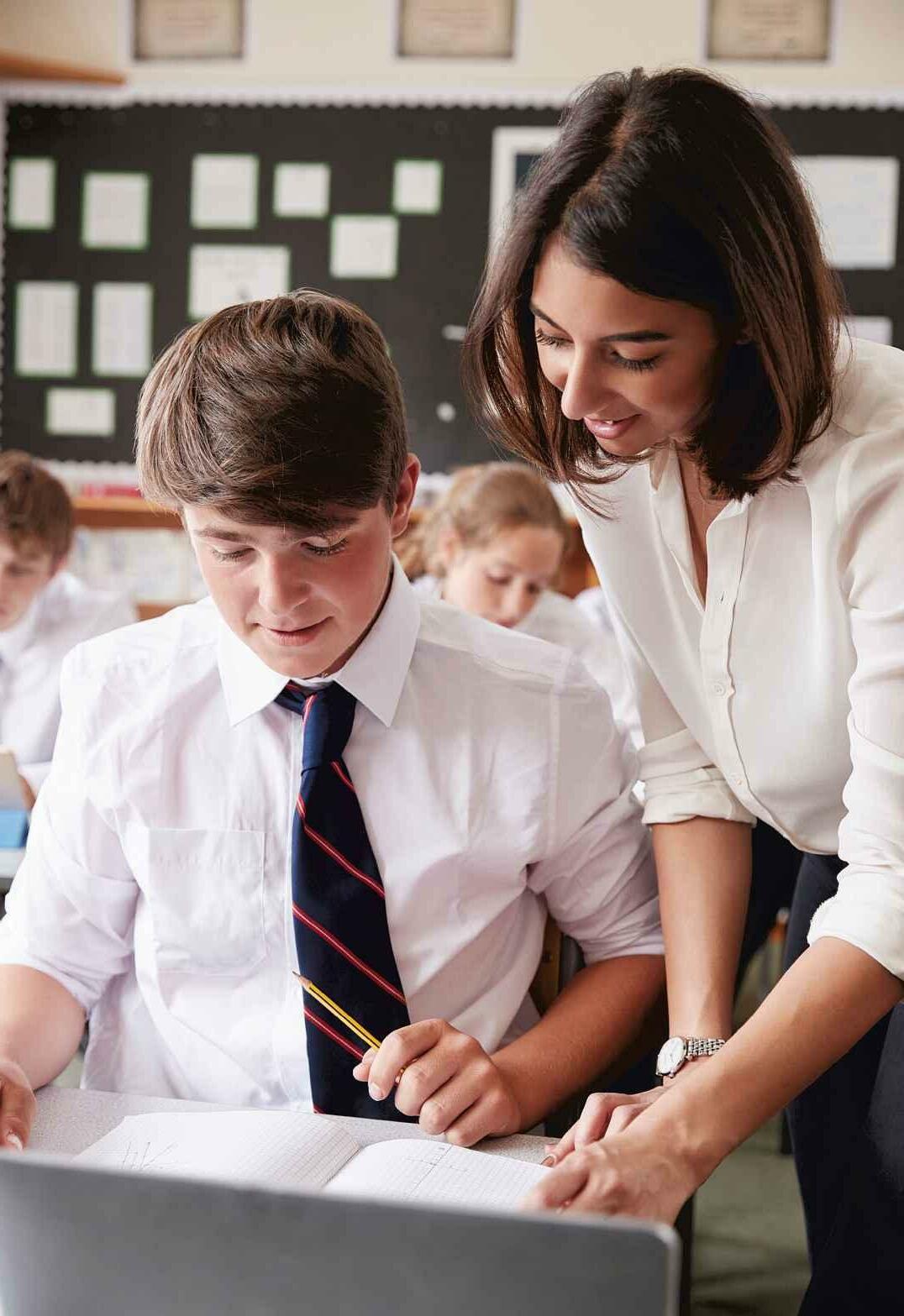


































OPEN DAYS TYPESOFSCHOOLS OFSTED EXPLAINED ADMISSIONS PROCESS ADVICE FORPARENTS YOUR FREE EXPERT GUIDE TO CHOOSING THE RIGHT SECONDARY SCHOOL INCORPORATING ‘INDEPENDENT SCHOOLSGUIDE’ 2022-2023SH RO PS HI RE WWW.BIGSCHOOLSHROPSHIRE.CO.UK SCHOOL



We'vegot everything you need forthe next stage of your education journey. Come and join the largest further education centre in Telford&Wrekin and Shropshire. Alevels Creativeand music Health, early yearsand education Public uniformedservices and sport Hair and beauty Catering Businessand digital Foundation Aviation and engineering Automotiveand construction Maths and English Apprenticeships Scan the QR code to check out our courses, find further information and to apply. telfordcollege.ac.uk
Welcome to Big School –your comprehensive guide to the next step of your child’seducation.
In this magazine you will find detailed advice on how to choose the perfect secondary school for your son or daughter This is wherethey will spend alarge proportion of the next five years and that’s why it’ssoimportant to find aplace where they will be happy and thrive.
Our guide details all of the factors you will need to consider when comparing different schools as well as information on the application process. It is also vital that you spend time researching the admission criteria for your area as some schools can often be over-subscribed.
At the same time you will want to ensurethat you know the options available to you if you choose to appeal an unsuccessful application.
Thereare also useful tips to help your

child preparefor lifein Year 7and to make it easier forthem to settle in at secondary school so it’sassmooth atransition as possible. This includes the uniform they will need for the classroom as well as options for their lunchtime meals and how they will travel to school each day
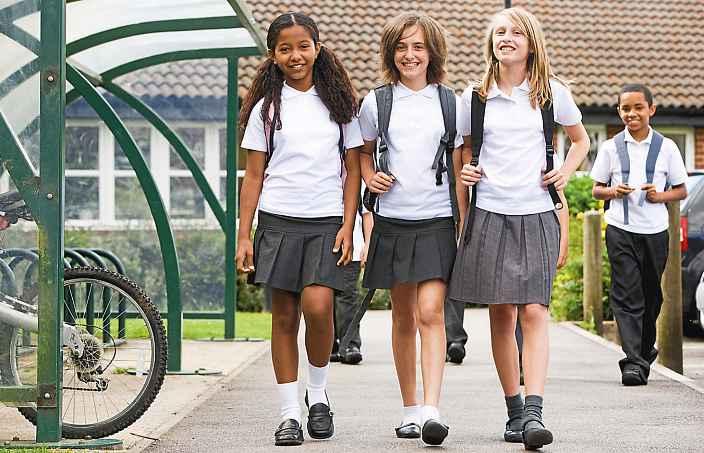
Thereisalso aspotlight on the broad range of schools across the region that are ready to welcome you to their open days over the coming months.
The guide also looks to the futureand the qualifications your child will be working towards over the next few years as they continue their education. And thereisalso informationonhow you can get involved in their secondary school by becoming a member of the PTA.
Starting ‘big school’ is ahuge milestone for both your child and you as parents and carers and we wish you all the best for the future.
WELCOME
EDITORIAL VickiJones vicki.jones@mnamedia.co.uk HeatherLarge heather.large@mnamedia.co.uk SENIOR ACCOUNTMANAGER ColetteClark colette.clark@shropshirestar.co.uk 01952241377 MNAMEDIA HEAD OF ADVERTISING KimberleyHazel kim.hazel@expressandstar.co.uk ADVERTISEMENTMANAGER ClareWeaver clare.weaver@shropshirestar.co.uk 01952288816 PUBLISHEDBY MidlandNewsAssociation QueenStreet, Wolverhampton, WV11ES 01902313131 PRINTEDBY PrecisionColour Printing, Halesfield,Telford TF74QQ Acommercial publication 4The next big step 5Helping your child settle in 6Applications explained 8-9 Types of schools 10-11 The appeals process 12 Open days 13 Taster days 14 Getting kitted out 15 Transport 16 Eating well 17 Homework 18 Subjects 19 Qualifications 20 Spot signs of bullying 21 Facing challenges 22 After school activities 23 Aparent’sview 24 Work experience 25 Ofsted 26 Revision tips .................. 27-40 Spotlight on schools across the region 41-59 Independent Schools Guide CONTENTS
Taking thenextbig step in your child’seducation
It probably seems like it was only yesterday that your child started school, but now it’stime to think about the next step.
Choosing the perfect secondary school for your child can feel daunting as it’sone of the most difficult decisions that you ever take as aparent.
It is important to thoroughly research all of the options available to you so you find the best fit for your son or daughter when they start Year 7.
Youwill want aschool wherethey are encouraged to achieve and reach their full potential.
Councils allow parents to make up to six preferences of schools, depending on whereyou live, with the final decision made according to the criteria set by the local authority,orindividual schools.

Although this can feel like alot of pressure, how you end up choosing your secondary school preferences will probably be very similar to how you found your child’sfirst school –with some of the same factors influencing your decision.
And remember –getting this next step right can help them on the way later in life and in their futurecareers.
Youmight be wondering whether you want acommunity school or an academy? Do you want to pay for aprivate education or send your child to agrammar school?
During this important decision-making process you will be looking at schools to see what teaching and sports facilities they offer pupils. Youwill no doubt also be examining the results they go on to achieve, as well as the support offered inside and outside of the classroom.
Now they areolder,your child will probably have views on wherethey want to go, which you will no doubt want to take into consideration.
Youmight want to consider whether the school caters for the things your child is interested in and what opportunities therewillbefor them to develop these interests further
Think about the ethos of the school –does it match your own cultureand values?
Morethanlikely they will want to go wheretheir friends aregoing.While this probably shouldn’tbethe sole reason for choosing aschool, if your child struggles to make friends and you think they will find it difficult going alone then it can be a worthy consideration.
Above all, you will want to be able to ‘see’ your child fitting in there.
Proximity will always come in to play as nearly all schools will use this as one of the main criteria when considering applications.
So you might have acertain school as number one on your preference list but it will depend on how many other parents have applied and how close they aretoits gates.
Having siblings already attending the school already will also give applications extra weight.
This means it’sessential to research your options well –soifyou miss out on your preferred choice you will be wellinformed on the others.
4
Education| THENEXTSTEP
What canyou do to help your childsettlein?
The transition from primary to secondary school is avery exciting step, but it is also often adaunting time for children and parents alike.
As adults, we oftenremember our own first day experiences –the butterflies in our tummies about the day ahead but also the excitement about all of the new experiences to be had and the friends to be met and made.
Every child is different: some will be champing at the bit to get started while others will feel anxious and uncertain. This is completely normal, but it is important to talk to your child to see how they are feeling and talk through any worries they might have.
Common worries include:
n Feeling daunted by the size of their new school and worried that they might get lost
n Not having the ‘right’ uniform or equipment
n Not being in the same class s or school as their friends from primary scchool
n Having different teachers for r diff f erent subjects
Hereare some practical things you can do to support your child:
n Practise the route to and froom their new school to ensureyou u both feel confident that they’ll know how to get thereand back safely.Ifthereare other children attending from the same primary school or area, perhaps look at whether they can travel to and from school together
n Look at the website for their r new school –thereislikely to be lots of useful information on theresuchasschool day
times, lunchtime arrangements, uniform and equipment lists and lunchtime and afterschool cllub timetables.
n Help youurchild to pack their schoool bag with everythinngthey need for their firsstday then build aroutinnewiththem so theeyknow what to pacckeach evening in p preparation for schhool the next day y


n P Practise getting into o their school uniform. If your child isn’tconfident with tying atie, theennow is agood timetopractice!

n Checkthe s school’smobile
phone policy.You may wish for your child to have their phone when travelling to and from school but it’slikelythey will need to turnitoff and put it in their school bag beforethey enter the school gates. Knowing this in advance will avoid any unnecessary sanctions.
n Talk through clubs they might like to join or activities they might want to get involved with e.g. joining the football team or learning to play amusical instrument. Getting involved with clubs from the start is agreat way to make friends and build confidence and independence.
Remember,this is the start of atruly exciting journey –one which will see your child grow into ayoung adult. They will make mistakes along the way –and it is important that they know that this is simply part of the learning process –but, ultimately they will flourish, becoming confident, kind and courageous members of society
5
5Education| ADVICE
ClareCrick, Associate Assistant Principal at St Peter’sCollegiate Academy,offers tips for parents preparing children for secondary school
FREQUENTLY ASKED QUESTIONS
n Will my childautomatically transfer from primaryinto secondaryschool?
No, thisisnot thecase. All applications have to be considered in linewiththe admissions criteria forthe school they areapplyingto.
Thereisnormallynoprioritygiven to children attendingprimary schoolsassociatedwithparticular secondaryschools.
n What is thedeadlinefor applicationstobesubmitted?
Applicationscan be done by post or online. Theclosing date for secondaryschoolapplicationsis statutory andisOctober 31
n What happensifIsubmitmy application afterthe deadline?
Unless therewere special circumstanceswhich stopped you from applying beforethe closing date,thenyourapplication will only be considered afterthose that were receivedbeforethe deadline.
If therewere special circumstances, then supportive evidencemustbeprovidedatthe time of your application
n What happensifIdon’t complete andreturnan application form?
Your childmay not be allocateda school placeuntil allthose who didhavebeenofferedplaces.
It is then possiblethatyour preferredschools will be toofull to admityourchild
n When will I find outwhich school my childhas been allocated?
Offerletters,oremails, will be sent outtoparents on March1, 2023.
Theapplication process explained
Applying to secondary school for the first time may seem abit daunting, so it helps to fully understand the process.
Letters will be sent out by councils detailing the steps you need to take. They always encourage parents to apply online, but paper applications will be available if you prefer.
Each council co-ordinates admissions for all maintained schools in its area and will make the offer of places.
Up to six choices can be stated on the admissions application, depending on whereyou live, in order of preference and they can include schools outside the area in which you live.

Places arenot allocated on afirstcome, first-served basis. All schools will consider applicants on an equal basis and parents areadvised to put forwardmore than one choice.
Also, all applications will be considered against the admissions policy of the school concerned, regardless of which borough or county the child resides in.
The entrance criteria will depend on how the school is run –whether it’sthe council, governing body or atrust
Faithschools are, as with other
maintained schools, required to offer aplace to every child who applies, regardless of their faith, if thereare places available. But wherethe school is oversubscribed, these schools allocate places by reference to faith based on their admissions criteria.
If achild meets the criteria for two or moreschools included on the application form, they will be allocated aplace at the school that the parent ranked highest.
For community or state schools, first priority is given to children in public care, or those who have been adopted or become subject to achild arrangement order or special guardianship order
Second priority will consider children with a‘serious ongoing medical condition’ and thirdpriority is given to children who have asibling or half sibling or stepbrother/step sister,living at the same address and who will still be attending the preferred school in September 2023.
Any places that remain available once the above applicants have been admitted, will be filled according to those children who live closest, determined by a straight-line measurement in metres, from the home address to the entrance of the school.
6
Education| APPLICATIONS
NewportGirls’High School
Abrand-new extension stands proudly behind Newport Girls’ High School.
Housing alight, airy dining room as well as four maths classrooms, an IT suite and science laboratory,the latest addition to the Wellington Road site offers girls the best facilities for learning and progress.
NGHS has been offering an outstanding education since 1919 and the School combines tradition with new,dynamic learning experiences, both in and outside of the classroom.
Teaching and learning is dynamic (Ofsted used the word‘buzz’ in 2019 to describe professional dialogue between teachers) and students all study abroad
curriculum with two modernlanguages and three, separate sciences from Year 7.

The jewel in the school’scrown is the pastoral careofits students. We have a range of colleagues whooffer support when it is most needed, but our cultureis
not about being reactive. We areaBeacon School for Holocaust Education, an ACSEED Awardschool for pastoral careand a lead school for the DFE Personal Social, Health and Relationships Education programme. All of these awards influence the education we provide to girls from Year 7-13.
Our Entrance Test each September is based purely around the work undertaken in Year 5Maths and English along with some wordand shape puzzles. It is very accessible to every girl and we offer familiarisation materials online.
Why not come and find out moreat our Open Morning on 14th October? You can be assured awarm welcome.

SCHOOLWITHSTATE-OF-THE-ART FACILITIES OFFERS AN OUTSTANDINGEDUCATION COMBININGTRADITION WITH NEW, DYNAMICLEARNINGEXPERIENCES
7 Education | COMMUNITY
Whichtypeof schoolis rightfor your child?
These days thereare many different types of school that differ in how they arerun and funded as well as what they teach.
Gone arethe days of it being asimple choice between agrammar school and a comprehensive. Now thereare many types of schools, run and funded in different ways.
n State schools, also known as community schools, aremanaged and funded by the council. The local authority employs all of the staff, owns the land and buildings, and sets entrance criteria. Pupils follow the National Curriculum and the council provides support services that may be required for students, such as psychological and special educational needs. Students tend to be from arange of different backgrounds and have a mixtureofabilities.
n Almost two thirds of the country’s secondary schools areacademies. They arerun by agoverning body and are independent from the local council, with funding coming from central government. Academies control their own admissions

process and have morefreedom in the classroom as they can opt out of the National Curriculum.
They also have morepower over pay, length of the school day and term times. But this freedom means thereisnormally no support, management or oversight from the local authority n Free schools arefundedbycentral government, but can be set up by groups of parents, teachers, charities, businesses, universities, trusts and religious or voluntary groups.
They wereintroduced as away to drive up standards through increased competition and hand power to parents and teachers to be able to create anew school if they wereunhappy with the state ones in their area. They areexempt from teaching the National Curriculum.
To receive funding they must teach English, mathematics and science and ‘make provision for the teaching of religious education’. They arestill subject to inspections by Ofsted. If you’reinvolved with founding afreeschool, your children areguaranteed places. Morethan 300 free schools have opened since 2010, teaching morethan 150,000 pupils across the country
n Private schools, also known as independent schools, charge annual fees instead of being funded by the Government. Many offer scholarships or bursaries based on assessment tests so it’sworth looking into whether this is an option. They can be offered to academically bright children or youngsters with aspecial talent, such as music or art. These schools arefreetoset their

8
Education| WHICHSCHOOL?
own curriculum, but must be registered with the Government and areinspected regularly.They tend to offer high-quality facilities and class sizes arelikely to be smaller
n Aboarding school provides education for pupils who live on the premises, as opposed to aday school. Thereare approximately 500 boarding schools across the UK. Children benefit from small classes and heightened interaction between students and their teachers as well as abroader range of extra-curricular activities.
n Grammar schools have been around since the 16th century,but the modern model was created as aresult of the Education Act 1944. It was all decided by an entrance exam –the 11-plus –which is still around today.Pupilswho passed went to grammar school, those who didn’t went to secondary modern. Today,there arestill around 160 grammar schools across England. Aban preventing new grammars from opening has been in place since 1998. These schools tend to have astrong focus on academic achievement and select pupils on the basis of ability through an entrance exam taken at the start of year 6.
n Faith schools can be different kinds of schools, such as community,freeschools or academies, but areassociated with a particular religion. They have to follow the National Curriculum except for religious
studies, wherethey arefreetoonly teach about their own religion. Anyone can apply for aplace.
n At Foundation schools, the land and buildings areowned by agoverning body, who arealsoresponsible for running the school, employing staffand providing support services. Pupils have to follow the National Curriculum.
n Voluntary-aided schools tend be mostly religious or faith schools. Just like foundation schools, the governing body employs staffand sets entrance criteria. This means it has asubstantial influence on how the school is run. School buildings and land areusuallyowned by acharity, often achurch. They follow the National Curriculum but may teach religious education according to their own faith.
n Voluntary-controlled schools areacross between community and voluntary-aided schools. The council employs staffand sets entrance criteria.
The difference is that school land and buildings areowned by acharity, often achurch, which also appoints some members of the governing body Voluntary-controlled schools arealso required to follow the National Curriculum. n Co-operative trust schools, are becoming morepopular.Although funded by the council, they aresupported by acharitable foundation, which means they can set their own admission arrangements.
Helpingpupils preparefor the worldofwork
n University TechnicalColleges (UTCs) aregovernment-funded schoolswithaSTEMfocus
Throughtheir associationwith employersand universities, throughproject-based learning, andthroughafocus on technical subjects,UTCsbridgethe gap betweenthe world of education andthe world of work.
Today, thereare 48 UTCs open across England, educatingin theregionof17,500students, andsupportedbymorethan400 employersand universities.They aim to preparestudentsfor future careers in industries such as engineering,healthcare, social care andscience.
They offerasecondary-age education forKey Stage4and Key Stage5withsomestartingearlier at KeyStage 3.
n Some schools, academies and colleges specialise in vocational subjects andoffer bespoke curriculums to help studentsonthe waytotheir chosen careers.

Some have aSTEMorhealthfocus, whileothersspecialise in thelikes of music, danceand performing arts andbroadcastmedia.Students canchoosearange of subjects that arerelevanttotheir chosen future careerand cantakeadvantage of industry-standardfacilities.
Thesespecialist schools, academiesand colleges workin partnershipwiththe industries so that studentsare able to applytheir learning to theworld of work
There arealsoStudioSchools, whichseektoaddress the growinggap betweenthe skills andknowledge that youngpeople require to succeed,and thosethat thetraditional educationsystem provides. They areusually small schoolsfor 300students; andwith year roundopeningand a9-5 working day, they feel more like a workplace than aschool.
9 Education| WHICHSCHOOL?
What to do if youdon’t get your firstchoiceschool
It’sinevitable that not everyone will get their first choice of secondary school. And while you will be keeping your fingers crossed that your child gets aspot, you should be prepared in case your wish doesn’tcometrue.
Popular schools will be oversubscribed so it’simportant to remain realistic when waiting to hear if you’ve been successful. Also, it’svital to spend some time preparing yourself in case you want to appeal acouncil’sdecision.
It may well be that you arehappy to accept aplace at aschool further down on your list if you believe it is still agood option for your child.
But if you feel the decision made is not reasonable or the procedurehas not been followed correctly then you arewithin your rights to appeal.
Your case will be heardbyan independent appeals panel and the system allows you to argue that thereare extra reasons why your child deserves a place at your top choice.
For anyone considering appealing the
decision, hereissome moreinformation on the process:
n What arethe first steps? Parents areadvised to accept the place you have been allocated regardless of whether you want it –this is asafety net to ensureyou have aplace for September if the appeal is unsuccessful. It can always be rejected at alater date if aspace becomes available, or if the appeal is upheld.
Then you should contact your preferred school to be put on awaiting list should the school have one. This may happen automatically but it is always worth checking that it has been done. This could remove the need for an appeal hearing if aplace is freed up by other means, such as achange in circumstances for another pupil.
n How is an appeal lodged? Parents should lodge their intention to appeal with either the local authority or,ifit’safree school or academy,the governing body Details of who to contact, instructions for beginning the appeal process and the deadline will normally be provided with the
place offer letter sent to you by the council. If morethanone school declines to admit your child, you areallowed to make separate appeals.
n What happens next? If you think there aregoodreasons why your child should go to your preferred school, then you can present your case to an independent appeal panel.
Focus on positive reasons why your child needs to attend that school as opposed to the allocated one. Don’tjust state why your child should not go to the allocated school. This might include the pupil’sspecific talents if the chosen school has specialist science or language facilities.
It is recommended that parents take along evidence such as school reportsto backupthe argument.
n What happens at the hearing? Appeals must be heardwithin 40 school days of the deadline for making an appeal. Either the school or council will give you at least 10 school days’ notice of the hearing. The panel is usually made up of three to

10
Education| APPEALSPROCESS
five members of the public –both with and without experience of the education system.
Local authorities recommend that you provide evidence of why your child should attend your first choice and why it would be bad for them to go to another school.
The school will also present its case for why it cannot take extra children and why it would be bad for the school if they had to.
Youwill be able to pose questions to their representatives so think about what you may want to ask in advance.
Members will listen to both cases and ask questions. During the hearing, the panel will also check that the school’s admission arrangements comply with the Schools Admissions Code. If the admissions criteria arelegal and were properly followed, the panel must decide if they werefollowedfairly and thoroughly
If they weren’tproperly followed or are illegal, your appeal must be upheld. If your appeal has not already been upheld, the panel will decide if your reasons for your
child to be admitted outweigh the school’s reasons for not admitting another child.

The result is sent by post within seven days and the decision is legally binding –it can only be overturned by acourt.
If successful, your child will be allocated aplace at their preferred school regardless of the class size.
n What happens if Ilose the appeal?
If the appeal is unsuccessful you can still put your child’sname on the waiting list in the hope of aplace becoming available. Thereisplenty of time for circumstances to change by September as families may move out of the area meaning spaces can free up.
But understand that you can move both up and down awaiting list. If afamily was to move into the area and be closer to the school, they could go above you.
If you’reunhappy about the way the appeal process was carried out, you can complain to your Local Government Ombudsman. They can recommend anew appeal, but they can’treview or overturn the appeal panel’sdecision.
IMPORTANT TO KEEP AN OPEN MIND ABOUT OTHERSCHOOLS
It’s easier said than done but it’s worthremembering to keep an open mindthroughoutthe applicationprocess.
If it doesn’tall go to plan,thenyou will need to remainpositiveabout theschoolyourchildhas been allocatedbecause that will make it easier forthem.
Children pick up on your mood andiftheyknowyou’reunhappy with theirschoolitcould affect howtheysettlein.
Concentrate on allofits positive attributes. If youare still feeling uncertain, contactthe school to arrange avisit andspeak to staff to allayany fears. Touringthe site forthe firsttimeorsecond,ifyou attended an open day, mayhelp you see it in anew light.
Also,rememberthatyouropinions andprioritiesmay well change andthe reasonswhy youruled the school outmay not matter so much in thefuture.
Youmay be worried about how youare goingtomanagewithyour childattendingaschoolfurther away but then find it easier than youwere expecting.
Maybeyou areconcerned about previousperformance figures, but then see test andexamresultsstart to improve.
It’s also very likely that afteryour sonordaughterstartsyou come to realiseitwas thebest fitfor them afterall
11 Education| APPEALSPROCESS
CONSIDER
ANYSPECIAL EDUCATIONAL NEEDSOFACHILD
Allchildren have aright to be educated in mainstreamschool. Some mainstreamschools have specialunits attached to cater forchildren with particular types of need,suchasautismorvisual impairments.
Such units offerchildren the opportunity to spendsome time in amainstreamsetting, butalso to receivespecialist teaching Your childwillneed an EHCP (an education,healthand care plan)to be considered foraplace in one of theseunits
There arealsomaintainedspecial schoolswhich arestate-run andfor children with more complexneeds that cannot be met in mainstream. Your childwillneed an EHCP to be considered for aplace
Non-maintained specialschools arerun privatelyorbycharities, some of whichare residential. Asmall number of children with an EHCP maygotoone of theseschools,where it hasbeen establishedthatnolocal school canmeettheir needs. In thecase of thistypeofschool, theonusis on theparents to provethatno otherschoolcan meet theirchild’s needs.
TheBritish Dyslexia Association recommends checking the school’s prospectusand asking for acopyofits SpecialEducational NeedsPolicy(SEN).Itsuggests that parents askifthere arespecial needsstaff with qualificationsin SpecificLearningDifficulty(SpLD) andwhattrainingdoall staffhave.
Theorganisation also suggests findingout whetherthere is a choice of foreignlanguages that includesmoredyslexia-friendly languages.
It recommends that youand your childmeetthe staff whowill give specialist help and find out what subjects thesupportwillbe available in.
Getting afeelfor anew school
Attending an open day is one of the best ways to let your son or daughter get afeel for anew school.
Many will offer guided tours and theremay also be the option to view a virtual tour on the school’swebsite. Open days areusually held in September and October,but most schools will allow parents and children book an appointment to visit if they can’tmake ascheduled event.
During an open day,you’ll be able to visit classrooms, and often pupils will show you around and talk to you about their school. Parents will probably be invited to hear atalk by the headteacher, the head of admissions or the head of the relevant section of the school.
Looking around the school will also enable you to discover morethan you would if you just read the prospectus. It’s an opportunity for you to speak to the staff, pupils, and the headteacher

Feel free to ask questions if you want to, particularly of pupils –whatdothey think of the teaching? do they enjoy life at the school?
Look at the work on display.Does it representabroad range of ability?
Does the school offer extra-curricular
activities –suchassports and clubs –so your child candevelop their interests?
This also shows that the teachers are motivated and enthusiastic. It will help you to really get asense of what it is like and how it operates on adaily basis.
Make sureyou have afew key questions to ask in order to get the most out of the visit –you might want to find out how many children areinaclass, or how the school deals with bullying.
Often current pupils will be drafted in to show prospective students around their classrooms and this will give agood insight into what life is like at the school.If they areenthusiastic and motivated then this agood sign that they arehappy
The events will also showcase what extra-curricular activities, such as sports and clubs, areonoffer.
Remember to ask about transport will your child have to make their own way there, or arethere buses? Find out about the lunch arrangements –are therehealthy school meals available and what do they cost? What arethe other options, such as taking apacked lunch?
Make notes and watch your child’s reactions and ask them what they thought. Above all, listen to your gut instinct.
12
POLICY ON
12 Education| OPEN DAYS
Make most of chance to sample secondaryschool
The transition from Year 6toYear 7 can be alittle daunting for students and parents.

When Year 6children say goodbye to primary school, it marks the end of an era in their educational journey.Asit’ssuch abig change for them, pupils areoften given the opportunity to sample secondary school life beforethey begin Year 7.
Once you’ve accepted your child’s place next spring, the headteacher will often invite your son or daughter to one or moretaster days, normally before the end of the current school year.
This day will give your child the chance to experience anormalday at the school as away of breaking them in and relieving anxiety over the summer holidays. They may also get the chance to meet other children from different primary schools so they can start getting to know their new classmates.
It will also give them the opportunity to find out wheretheir form room,canteen, lockers and
toilets arelocated as it’slikely they will not remember this from when they attended the open day.This will make their first day easier as they will already have arough idea of the layout of the school.
The main aim of the taster day is to help make the transition from primary school to secondary school as smooth as possible.
During the summer holidays, their new school may give them tasks to complete beforethe new term begins. Some also provide activity ideas such as recipes to
try that will be similar to what pupils will be learning in food technology or simple science experiments they can do at home to give them ataster of what their lessons will be like in Year 7.
Many parents also choose to set their children learning tasks to keep their brains ticking over during the break from school and avoid what has become known as the ‘summer slide’.
This might be activities such as taking part in the Reading Agency’sSummer Reading Challenge, maths quizzes or fun games like Boggle that help to build language skills.
Some schools may also offer a summer school with sessions aimed at giving teachers the opportunity to learnabout your child, what their strengths areand what support, if any,they might need.
Every school will operate differently so it’sworth asking what they offer when you attend an open day or look for any information in their prospectus.

13
13 Education| TASTER DAYS
Kittingyourchild outfor theirnextbig adventure
Thereisnogetting around it. Kitting out children for their first year of secondary school can be expensive, but thereare ways to keep the costs down.
It’sbeen estimated that parents spend upwards of £200 ahead of the new academic year on everything from trousers, skirts and shirts to PE kits.
Supermarkets have become alifesaver for parents seeking to save on school uniforms with Morrisons, Asda, Sainsbury’s, Tesco and Marks &Spencer all offering arange of deals on basics.
While primary schools tend to be moreflexible, secondary schools have sometimes required moreitems such as blazers and jumpers to be purchased from specified suppliers.

But, from this autumn, they will be required to take steps to remove unnecessary branded items and allow morehigh-street options, like supermarket own-brand uniform.
The school uniform bill was first introduced by Labour MP Mike Amesbury, with the backing of the Children’sSociety and became law in May 2021.
It followed acampaign for action after concerns wereraised that pupils were having to sit out class or werebeing sent home from school for not having the right kit. The aim was to ensurethat in the futureuniform would never be aburden for parents or abarrier to pupils accessing education.
As part of the new guidance, schools areencouraged to provide asecond-hand option for parents, to both support families and help work towards achieving net zero carbon emissions.
When looking for uniform options, it’s always best to check what the school’s uniform policy requires beforehand. Pay attention to the fine details such as the minimum length and permitted types of skirts and the styles of trousers that are allowed. Shoes arearegular issue for parents as schools arevery specific on what is required and students will be sent home for wearing the wrong footwear
It’sbetter to be absolutely surethat the shoes you arelooking at will be allowed beforeyou spend the money
Spreading the cost throughout the
TIPS TO SAVE CASH
n Shop during thesummer:take advantageof‘back to school’offers during thesix-weekholiday as costs oftenrisewhenpupilsare back at school
n Don’tleave it to thelastminute: Shoppingtoo closetothe startof term couldmeanyou miss outas some shopswillhaverun outofstock or have less options in popularsizes n Cutthe cost by swapping:Taketo social mediasites such as Facebook to see if parents aresellingsecond hand uniformorifyou’relucky they mightevenbegivingawayclothing that hasn’t been wornveryoften for free
year can help reduce the bill –justbuy the essentials and now and then top it up with other items as they areneeded later in the year.Make the most of the end of season sales, consider buying your child awinter coat as the weather becomes milder so they have it ready for the autumn.
Youcan buy it in abigger size which gives them room to grow.Ifyourchild has friends attending the same school consider buying some items in bulk to
bring the cost down. Take advantage of three for two offers which you can sharethe cost of between you to make it cheaper
If you arestill strugglingtocover the cost then some councils run grant schemes with cash available as long as certain conditions aremet.
Also, check if thereare any uniform swap shops running in your local area. They offer pieces of clothing for free and it’snot dependant on you having items to swap.
Bear in mind that your child may get involved in extracurricular activities and therecould be additional fees involved such as equipment, musical instruments and art supplies.
Some schools or councils will subsidise activities like music lessons to help bring down the cost for parents as they want to make them accessible to all. It helps to find out early what these may be so you can budget for them.
School trips, while certainly educational and fun for your child, can be another strain on your finances and something worth planning ahead for.Although trips areoptional, peer pressurecan mean you feel you areleft with little choice but to find the money
14
Education| UNIFORM
Howwillyourchild getto theirsecondary school?
Once you know whereyour child will be studying next September,you will need to consider how they aregoing to get to school.
Arethey going to walk, catch abus or be dropped offbycar?
If their new secondary is just around the corner,then obviously it should be within easy walking distance of your home. But if it’sfurther away it may mean your child will be catching the bus for the first time by themselves. Or,you mightfind it’s easier for you to drop them offinthe car on the way to work.
If your child will be walking to their new school, you will need to think about whether they will go alone, with friends, or whether someone will walk them. As the nights start drawing in, make surethey can be clearly seen when they’rewalking to and from school. It’sworth buying reflective high-visibility stickers to put on their school bags.
It may be that you want to accompany your child at the start until they areused to the routeand you arehappy to let them go by themselves, or with their friends.
If the school is further away,your child may be automatically entitled to free transport up to the age of 16.
To qualify they need to attend the nearest suitable school, which must
be further away than statutory walking distance of three miles for pupils aged eight or more. Statutory walking distance is measured by the shortest routeachild, accompanied if necessary,can walk with reasonable safety.Ifthereisnosuch route, the local authority must provide free transport no matter what distance you live from the school.
The local education authority or governing body will either provide its own transport, hirecoaches, or provide free bus or train passes for use on public transport. In some cases, atravelling allowance may be paid to pupils who provide their own transport, for example, a cycle allowance.
Pupils who do not qualify for free transport may be allowed to travel on spareseats on school buses for afee.
Your local council will be able to tell you about what transport options are available in your area and what support is on offer.Ifyour child will be taking public transport, it may help to calm any nerves by practising their route beforethe start of term. This will help them to get used to getting out of the door and to the bus stop on time.

Whether it’spublictransport or abus provided by the council or school, it’s worth having aPlanBincase your child
misses their lift. Make suretheyknow what they need to do if this happens, whether they should call you or another relative, or get ataxi. If it’sthe latter,make surethatthey have ‘emergency money’ to pay for it and that they know what it’s for and that it should be kept it in asecure place in their bag.
Another option worth exploring when considering transport to school is cycling.
According to Cycling UK, cycling to school helps pupils keep healthy and fit. It also has the capacity to boost their confidence, independence and sense of self-worth, plus their navigational and road-craft skills.
The charity also believes cycling is a skill for life and that by encouraging as many children as possible to see it as viable transport it will help to wardoff car dependency in adulthood, and contributes to reducingthe volume of motor traffic in the future.
If your child would like to cycle to school, it’sagood idea to consider a course like Bikeability,which teaches valuable skills, such as good road positioning, signalling and visibility and can help parents and children feel at ease on busy streets.
n See www.cyclinguk.org for more information
15
15 Education| TRANSPORT
EXPERTSSHARE TOPTIPSFOR A HEALTHIERLUNCH
TheNHS’s Better Health campaign hasprovidedthese top tips for healthylunches
n Keep them fuller forlonger–Base themainlunchboxitemon foodslikebread,rice, pastaand potatoes.Choosewholegrain where youcan
n Freeze for variety–Keepa smallselection of differenttypes of breadinthe freezersoyou have avarietyofoptions –like bagels,pittas andwraps,granary, wholemeal andmultigrain.
n DIYlunches –Wraps andpots of fillings canbemoreexcitingfor kids when they gettomakethem. Dippingfoods arealsofun anda nice change from asandwicheach day.
n Cutbackonfat –Picklower fat fillings ,likeleanmeats, fish, lower-fatspread, reduced-fat creamcheeseand reduced-fat hard cheese. Andtry to avoid usingmayonnaiseinsandwiches.
n Always addveg –Cherry tomatoes,orsticksofcarrot, cucumber,celeryand peppers allcount towardstheir 5ADay Addingasmall potofreduced-fat hummus or otherdipsmay help with gettingkidstoeat vegetables.
n Cheesydoes it… Cheesecan be high in fatand salt,sochoose stronger-tastingones– anduse less of it –ortry reduced-fat varieties.
n Cutdownoncrisps –Ifyour childreallylikes theircrisps try reducingthe number of timesyou include them in theirlunchbox, andswapfor homemade plain popcorn or plain rice cakes instead.
n Addbite-sizedfruit –Try chopped apple, peeledsatsuma segments,strawberries, blueberries,halvedgrapesor melonslicestomakeiteasier forthemtoeat.Add asqueezeof lemon juicetostopitfromgoing brown.
Fuel studieswith adecentmeal
Your child will need agood meal in the middle of the day to help them process all the new things they are learning.
And the choice is either they take in packed lunch from home or they choose ahot dinner in the school canteen. Both have their pros and cons.
Sending your son and daughter to school every day with afulllunch box gives you control of the food they eat.
But it’sanother job to do each morning when time is already precious and it can be hardtokeep the options interesting for your child.
School dinners mean you know your child is getting ahot meal at lunchtime, but if you areleaving them to choose from the canteen menu you can’tbesurethey will select something nutritious.
For some of you the decision may be influenced by whether your child is entitled to free school meals. This is normally the case if you areinreceipt of benefits such as Income Support, Child TaxCredit and Universal Credit. The local council can tell you if your child is able to get free school meals.
In recent years, schools have put a lot of effort into revamping their dinners, especially after celebrity chef Jamie Oliver highlighted the issue in 2005.
He started his Feed Me Better
campaign because he was appalled by the junk food being served at many schools in England. It led to new guidelines for school dinners and the Government investing £280 million on improving menus for youngsters.
Now all schools have healthy eating policies, which arereflected in the menus on offer for pupils. They also cater for different diets and allergies as well as for different religious faiths and beliefs.

Some have cashless systems where children use acardoreventheir fingerprint to buy their food each day after parents have paid money into their account at the start of term. The benefits of this arethatit means childrendonot have to carry cash on them each day.Italso allows parents to monitor what their child is eating at school because they will know what has been purchased on their account.
Many parents still choose to send their children to school with apacked lunch, especially if they prefer to eat ahot meal together as afamily in the evening.
Thereare plenty of ideas online if you’renot sure what to give your child for lunch and suggestions to shake things up if they get tired of sandwiches each day
Some schools also offer breakfast clubs to ensurepupils start the day well and have the energy they need to make the most of their lessons.
16
Education| FOOD
Keepingontop of the increase in homework
The amount of homework your child has to do will almost certainly increase significantly when they start Year 7.

It’sadaily part of secondary school life and your child will be expected to complete it all and meet any deadlines they areset. Homework helps to build on what your child is learning at school so plays an important role in their education.
It’sofcourse only natural that they may struggle to adjust to this increased workload at first. But thereare plenty of ways you can help them settle into this new routine.
Encourage them to be organised by helping them to get used to checking their timetables and packing their bags the night before. It may help to draw up alist of items needed for each subject together so that they always have that to refer to.
As well as books and equipment, make surethey know when they will need their sports kit, whether for lessons or after-school activities. This will lead to less panicking and reduce the chances of anything being forgotten in the mornings well, in theory anyway!
Children areusually given aplanner to help them manage their homework. They’ll
be expected to use it every lesson to write down the details of their homework. Youwillprobably be asked to sign their planner every week to confirm that they’ve completed their homework
Take time to talk to your child about each day’shomeworkassignments and make surethat they arekeeping their planner up to date with what is required and when. Youmay wish to provide them with wall space to hang aplanner at home, such as awhiteboard, to also write their assignments on too.

While you don’twant to nag them, you don’twant them falling behind either Teach them to prioritise their work so that they aredoing the tasks in the correct
order according to the deadlines they have been set by their teachers.
Ensurethat they have somewhere quiet to complete their work without any tempting distractions like the television or their tablet.
Encourage them to speak up if they arestruggling, and if you have real concerns that they arefinding it difficult to cope persuade them to speak to their form or subject tutor.Ifthey areworried or unwilling then you may want to do it yourself.
If you think they aretaking longer to complete an assignment than they should, then wait to see if it’sjustaone-off–it may be that it’sone particular topic or task they’ve found morechallenging. But if it becomes aregular occurrence you may wish to raise it with the school.
Schools will have different policies concerning what happens if homework isn’thanded in, but it’susual for pupils to have to complete the work in detention. Reminding your child of this may be useful if they areshowing signs of wanting to ignoreanassignment, or put it offfor another day
But once they get into aroutine, they’ll be fine.
17
17 Education| HOMEWORK
Whichsubjectswillyour childbestudyingnow?
If your child’sschool follows the National Curriculum then therewillbe compulsory subjects for them to be taught during the next five years.
They will vary depending on their age –Key Stage 3isfor years 7to9and Key Stage 4for years 10 and 11 when most pupils work towards national qualifications, usually GCSEs.
Although academies and private schools do not always have to follow this, thereare still some subjects that arecompulsoryfor all students. If your child’snew school is following the National Curriculum, then they will have lessons in set subjects including English, mathematics, science, history,geography, modernforeign languages, physical education, citizenship and computing.
In English classes, pupils will be taught to develop an appreciation and love of reading as well as to understand increasingly challenging texts.
The programme also includes writing accurately,fluently,effectively and at length
for pleasureand information as well as speaking confidently and effectively using various methods such as presentations and debates.
During Key Stage 3, the aim is for pupils to become fluent in the fundamentals of mathematics, including varied and frequent practice with increasingly complex problems over time.
They will also learntoreason mathematically by following aline of enquiry and solving problems by applying their mathematics to avarietyofroutine andnon-routine situations. History lessons may include the development of church, state and society in Medieval Britain 10661509, challenges for Britain, Europe and the wider world 1901 to the present day and the Holocaust.
While science teachers will work to ensurepupils develop their scientific knowledge and conceptual understanding in biology,chemistry andphysics.

They will also be taught nature, processes and methods of science
through different types of enquiries that help them to answer questions about the world around them.
In geography sessions, they will work to extend their locational knowledge and deepen their spatial awareness of the world’scountries using maps of the world. Pupils will also be taught to understand geographical similarities, differences and links between places through the study of human and physical geography as well as geographical skills and fieldwork.
From Key Stage 3, schools arealso required to providelessons in religious education and sexeducation, but parents can sometimes choose whether children attend these classes.
Academies must teach abroad and balanced curriculum, which they can set themselves, but it must include English, mathematics and science. They must also teach religious education.
Schools will be able to provide details on their specific curriculum if you are unsure.
18
Education | SUBJECTS
Workingtowards theend goal –qualifications
In abid to ensurepupilsleave school better prepared for work or further study,GCSEand A-level qualifications have been overhauled in recent years.

Although thereisstill some time before your child will be ready to consider their options, it helps to understand what they will face in the future.
For the first time, in 2017 students didn’tjust receive their grades subjects in the usual A*-G format –inmathematics, English language and English literature they weregraded on ascale between 9 and 1instead.
These werefollowedbyafurther 20 subjects including history,geography, double science, PE and art and design with the remaining subjects getting the new grades this August.
Anine is the top grade, while one is the lowest pass possible, with an outright fail still graded as aU
The top grades of A**, A* and Aare broadly equivalent to anew grades of 9, 8 and 7, while pass marks of Band Chave been replaced by grades 4, 5and 6. At the lower end of the scale, grades D, E, F and Gwill be graded 3, 2and 1.
The Department for Education (DfE) says its new GCSEs aredesigned to match the standards set by the strongest performing education systems in the world.
While exam regulator Ofqual says the 1to9 scale will help them to better differentiate between the highest performing pupils and distinguish clearly between the new and old exams. It also says thereisnew,moredemanding content.
Courses aredesigned for two years of study –theyare no longer divided into different modules and students will take all their exams at the end of their course.
Exams can only be split into ‘foundation tier’ and ‘higher tier’ if one exam paper does not give all students the opportunity to show their knowledge and abilities. Mathematics is one of the few subjects that remains tiered.
The regulator says this is because manageable assessments cannot be designed that would both allow students at the lower end of the ability range to demonstrate their knowledge, skills and
understanding, and that would stretch the most able students. The two tiers are focused on grades 1-5 and 4-9.
Thereare nowfewer course options in the new science GCSEs –most students will take the new combined science course, which is worth two GCSEs, or three separate GCSEs in biology, chemistry and physics.
Meanwhile changes have also been introduced to the A-level system. The reforms have seen aswitch to assessment being mainly by exam and have also led to some subjects such as applied science and creative writing being scrapped.
New style study programmes were introduced for some subjects in 2015 and since 2017 all courses have followed the same system. Courses arenolonger being divided into modules and all exams take place in the summer.The changes also mean that students have less coursework and fewer practical assessments.
AS and A-levels have been decoupled so that AS levels become stand-alone qualifications and no longer count towards an A-level, in the way they have previously done. They have also been designed by exam boards to be taught alongside the first year of A-levels.
The content for the new A-levels has been reviewed and updated, with universities playing amuch greater role in this for the new qualifications than they did previously.Itishoped that this will make A-levels better preparation for university study
TLevels, which areequivalent to three A-levels, have been introduced in recent years. The two-year courses were developed in collaboration with employers and businesses so that the content meets the needs of industry and prepares students for work, further training or study
TLevels offer students amixture of classroom learning and ‘on-the-job’ experience during an industry placement. Subjects include in design, surveying and planning for construction; digital production, design and development; education and childcare; finance; hair, beauty and aesthetics; animal careand management; media, broadcast and production; and healthcarescience.
Apprenticeships arealso becoming an increasingly popular alternative to A-levels, with students looking to combine real work with academic study.Itisalso an opportunity for 16-year-olds to earnand learnatthe same timeasgetting afootin the door of their chosen industry
19
19 Education| QUALIFICATIONS
HELPINGYOUR CHILDTOSTAY SAFE ONLINE
Once your childstartssecondary school it’s likely that they will become more exposed to smartphonesand social media. Andtheyare nevertoo young to startdeveloping good online habits
Oneofthe best ways to startisto encourage your childtotalktoyou abouthow they usethe internet and show youwhattheydo.
Settingafew ground rulescan also be away to ensure they aresurfing safely.Thismight include asking them to usetheir tech devicesina communal area such as theliving roomorkitchen.
Anotherimportant step is to activate allofthe parentalcontrols on your home broadbandand alldevices includingmobile phonesand gamesconsoles. Safe searchingfeaturescan also be set up on websitessuchasGoogle
As they getolderyourchildmay want to have asocialnetworking profile on sitessuchasFacebook andInstagram.The agelimitis13 for thesesites andmanygames, apps, filmsand othersocial networks will have ageratings
When they areold enough, talk to them aboutthe benefits andrisks beforetheyjoinand ensure they understand that anything they upload,email or message is out of theircontrol as soonasthey pressthe button.Remindthemthey should only do thingsonlinethat they wouldn’t mindyou,a teacher or afutureemployer seeing It’s also importantthattheyknow howtoblock or ignore people and howtoset strict privacysettings
Children oftenfeeltheycan say things onlinethattheywouldn’t sayface-to-face, so it’s important to teachthemtoalwayshave respectfor themselves andothers online. They also need to know there is nothingwrong in NOT giving in to peerpressureto send inappropriatecommentsor images
Spotting the signsofbullying

Knowing or suspecting that your child is being bullied can be very upsetting, but there’slots you can do to help tackle the problem.
Although you hope it never happens to your son or daughter,thereisachance it might so it helps to be prepared to recognise the signs so you can help.
The good news is that most schools arevery pro-active when it comes to preventing and dealing with this problem.
Bullying can take many shapes and forms and sadly technology and social media have also made it easier for those who want to cause trouble for others. n Cyber bullying –usually carried out online, via smartphones and tablets –is becomingincreasingly common and can cause the same emotional and physiological stress as the conventional kind.
However,one of the biggest challenges posed is that it can be harder to detect because it only takes place via phones and other electronic devices.
The charity Family Lives recommends parents make note of everything that happened, including who was involved, when it occurred and who witnessed it, beforeapproaching the school.
Cyber bullying, unfortunately,can be harder to spot, and with mobile technology being so freely available it can seem never-ending as the taunting can continue at any time of the day or night.
It can also be made worse if taunts aremade via social networking sites and messaging apps because anything posted can often be seen by lots of people and easily shared.
n Make an appointment with the class teacher or head of year –they will want to see you if you have concerns. All state schools arerequired to have an antibullying policy by law.Work together with the school and make it clear you are seeking their help in finding asolution.
n Avoidaccusing the school –remember that teachers areusually the last to find out that bullying is happening.
n As difficult as it may be, try to be patient –allow the school time to deal with the problem but stay in touch with them and arrange afollow-up meeting to see how the situation is being resolved.
If things don’timprove, keep abullying diary and write down every incident as soon as possible after it happens making suretotell the school each time.
n Look for changes in your child’s behaviour –they may be less talkative and appear secretive. They may suddenly be unwilling to go out with friends or stop doing an activity they have always enjoyed.
Once they have confirmed your suspicions –keep alog of what’s happened, get screen grabs of texts or messages on social media and then go to the school for help.
20
Education| BULLYING
Be preparedand meet anychallengesheadon
As they make their journey through secondary school, it’sonly natural that tricky problems may arise for pupils from time to time.
Although parents will keep their fingers crossed that everything goes smoothly,itcan help to be prepared to deal with any issues that might pop up along the way.
Firstly,it’sgood to talk to your child so they know they can come to you with any issue they might be having. Reassure them that you will be theretooffer a listening and understanding ear,nomatter what is going on.
One issue that is bound to pop up –and itcould be one that you have already discussed –does your child need amobile phone? Yes, would probably be their automatic answer,although you might not be quite so keen. However,as they arenow likely to be travelling further afield to lessons, or participating in more after-school activities, you might consider whether your child requires one so they can contact you in an emergency
While it would be beneficial, you may be concerned that it could prove too much of adistraction. Pretty much every school will have amobile phone policy outlawing their possession and use on school grounds. But most will accept that pupils carry them for safety reasons. They may have aprocedure in place such as requiring them to be left with staffduring school hours.
If you decide it’sagood time for your son or daughter to be given this extra
responsibility,then it can be helpful to set some rules on its use and to reiterate the school’spolicy.Ultimately it will come down to what you arehappy with and what you feel is right for your child.
As your son or daughter moves through secondary school they arelikely to experience an increased workload, especially when it comes to homework.


So how much help is too much? It’s likely your child will be assigned homework most nights and be given deadlines of when it all needs to be completed. It’s the best way for them to practise what they have learned in school, but it can be overwhelming at first, especially if they are not used to it.
Experts recommend that parents resist the temptation to get too involved in their child’swork. They also say it’simportant to never correct work for them beforeit’s beenseen by ateacher because then it’s not atruetest of their abilities.
Many agree that the best way to
help your son and daughter is to offer encouragement to ensurethey arekeeping on top of their assignments and also guidance –if they’re not comprehending a concept, take time to explain it. Discussing ideas or quizzing your children in spelling or foreign language phrases is another good way to show support.
During the five or seven years your child is at secondary school, you will hopefully never have areason to complain about their school or ateacher.But if you areconcerned, what should you do?
The first step is trying to resolve the problem with the school directly.This could be through an informal discussion with the headteacher
If you fail to find asolution, the school should have aformal complaints procedurethatyou can follow.This will normally involve contacting the school’s management or governing body
21
21 Education| CHALLENGES
CHANCE TO GAIN EXPERIENCES OUTSIDEOFTHE SCHOOLDAY
From theage of 14,young people canworktowards earningThe Duke of Edinburgh’sAward
Most schoolswillrun a DofE programmewiththree progressivelevels which, when successfullycompleted, lead to aBronze, Silver or Gold award. Notonlyisitanopportunity to discovernew interests and talentsbut it’s also arecognised mark of achievement; respected by employers.
There arefoursectionsto complete at Bronze andSilver leveland five at Gold.They involvehelping thecommunity/ environment, becoming fitter, developingnew skills, planning, trainingfor andcompleting an expedition and, forGold only,working with ateamona residentialactivity.
Anyyoung personcan do their DofE –regardlessofability, gender,backgroundorlocation It is said that achievinga DofE awardisall aboutsetting personalchallengesand pushing personalboundaries.
Otherextra-curricularactivities include theArmyCadets, Sea Cadetsand RAFAir Cadets, whichall offerawide rangeof adventurousand educational activities opportunities
TheArmyCadetsisanational voluntaryyouth organisation sponsored andsupportedbythe Army butnot part of it.It’sopen to youngpeople from 12 to 17 yearsold
SeaCadetswelcome Junior Cadetsat10, andSea Cadetsat 12,orRoyal MarinesCadetsat 13
TheRAF AirCadet experience is open to everyone,ifthey’re between 13 (oratage 12 when beginningschoolyear8)and 17 yearsold.
Take advantage of opportunities
From playing in the band to being part of asportsteam, thereismoreto school life than just what goes on in the classroom.
In addition to their lessons, your son or daughter will have the chance to join in awhole host of extra-curricular activities. Every school will offer apacked programme to ensurethereissomething to suit all interests.
Maybe your child will already have afavourite sport or other interest they want to continue or they might choose to try something new.Your child will no doubt have plenty of opportunities and it is something that should always be encouraged.
Joining after-school clubs can make it easier for them to settle in to their new surroundings and make friends. Children, especially those that areshy,may be concerned about how they aregoing to get to know their new classmates. They will be moving from aschool wherethey knew everybody’sname and now they could be in aclass with children they have never seen before.
It is also agreat chance for your child to develop an existing interest or start anew hobby,which could turninto alife-long passion. All schools will offer sessions, with meetings taking place either beforelessons, during lunch breaks and at the end of the day
If your child doesn’thave aparticular interest already,encourage them to try something new and hopefully they will end up enjoying it and will want to continue. Once your child has found an activity that they enjoy,succeeding in that activity could ultimately build their confidence and self-esteem.
As well as all kinds of sports, they could get involved in special-interest clubs such as science or computing, music tuition and modernforeign languages, as well as homework clubs. Popular extracurricular activities include book groups, creative writing, and performing arts such as drama or choir groups.

Another benefit of extra-curricular activities is that they allow your children to make acontribution to their school or community,helping to preparethemfor later in life. For example, if they play in a school band they may stage aconcert that is open for the public to enjoy
They also present opportunities for your child to set goals for themselves such as passing amusic exam, or being picked for the lead role in aplay
Sports teams, clubs and activities, like dancing and music, all requirechildren to work together towards acommon goal. By joining an after-school club, they will also have the chance to mix with children of other age groups and outside their own circle of friends.
22
Education| AFTER-SCHOOL CLUBS
Bigmoveissteep learning curvefor theparents too!
My son Jenson is 12 and an only child, so Ifound it hardtocometoterms with how quickly my son has grown up and how his primary school years seem to have just flown by.

If Icouldtake astepback in time I certainly would and really relish those younger years, although with working full time it is difficult to juggle everything.
Ialready had afriend whose son had joined secondary school the year before, and she was definitely my ‘go-to’ on the right and wrong things to do when preparing Jenson for the transition to ‘big school’, even down to what colour bag that most of the boys had and that they weren’tallowed velcroshoes!
After finding this advice really useful, a group of us who have children at Jenson’s school, recently set up aFacebook group for parents and prospective parents so that they don’tfind themselves in the same situation and they can ask questions about the new school year ahead. This is also agreat way of parents making friends and keeping in touch too.
Starting secondary school is not just asteep learning curve for children! BeforeJenson started therew lots of things Iwished I’d known.

One thing was how expensive things can be, from school trips to school lunches –which can be anything up to £5 aday He needed lots more equipment, not to mention the uniform, and with having to buy anew pair of shoes pretty much every term, because he loves football and plays at breaktimes, the costs soon mount up.

The main thing Ihave discovered during Jenson’sfirst year
is how independent school expected him to become in such ashort space of time. Although this is good thing in the long run, you still see them as your baby and it can be hardtocome to terms with.
Another thing is how they need to manage their time better too, so that they dedicate enough time each week to their homework.
During this first year,Jenson has changed massively as aperson. Notonly has he grown, but he has become so much moreindependent. He can now hold an adult conversation and knows how to get from A to Bifhis dadand Ican’tbe around after school.
He is also now holding conversations with us on what he wants to do when leaving school and is already looking at options for when that time comes.
Primary school is definitely run differently from secondary school.
The school Jenson attends has aparent login that you can access daily,soyou can see the
daily/weekly timetable, if they arein lessons, their attendance and behaviour and, moreimportantly,the homework that is set, so you can keep track.
One vital piece of advice Iwould give toparents is to do your homework before making your choices for secondary school to ensurethat the school fits with your child’sneeds and expectations.
If they aresporty,does the school offer enough opportunities to allow them to take part in the things that they enjoy? Learning is massively important obviously,but they also need to enjoy other activities too.
Jenson thoroughly enjoyed primary school and so when he first stepped through the ‘big school’ doors, it was a whole new world. With himnot having the easiestoftransitions, due to Covid, he found it hardatfirst.
This was due to the expectations on him and how big the school is compared to primary with lots morepupils and from different areas.
However,hehas made so many new friends –ones that have similar interests as him such as football, but also discovering that he enjoys other things too such as cooking, cross country –the list is endless.
23
23Education| APARENT’SVIEW
Colette Clark, whose son Jenson has just finished his first year at secondary school, gives her view on the move to big school
Giving youngsters ataste of theworld of work
One of the secondary school milestones your child can look forwardtoistheir first work experience placement, usually in Year 10
This is achance for your son or daughter to get out and explorethe world of work and gain some invaluable insight which could inspiretheir futurecareer choice.
Their teachers will no doubt explain moreabout the process when the time comes, but it doesn’thurt to have an early understanding of what they will be required to do.
And some early planning may also help to ensurethey secureaplacement in their preferred industry,especiallyifit’sone that’s goingtobepopular
If you know wherethey want to work or what sector they would like to work in, then you can start making enquiries ahead of time.
For pupils who don’tknow what career they might like in the future, experts recommend they think about what they arepassionate about as that should spark some ideas.

If they like animals then they may want to look into options that will enable them to work closer with them. If they enjoy looking after younger siblings or babysitting then childcareorteaching might be agoodfit.
Nearer the time, pupils should speak to their teachers or careers advisor at school as they will be able to help
with organising the placement and with speaking to the correct people as well as dealing with the logistics.
Work experienceissaid to offer many benefits to teenagers such as boosting their confidence and inspiring their future career goals.
Placements will also help them to develop skills such as communicating with others, working in ateam and problem solving, which will be beneficial to their studies.
If your child wants to enter the world of work after leaving school, then work
experience can also be aroute to landing ajob.
Impressing an employer during awork experience placement could mean they think of your child when they arelooking to recruit. Many companies will offer opportunities to people who areknown to them or they know already have an insight into the business.
If your child plans to go to university or start an apprenticeship, then having completed work experience in asector related to their course or preferred place of work will show that they have enthusiasm and have made an effort to get abetter understanding of what the job involves and what is required from them.

Competition for university places in areas such as medicine or veterinary practice can be tough, so having already secured work experience can help to make their UCAS application stand out.
Although it’susually atwo-week work experience placement in Year 10, many companies will allow students to return during school holidays so they can build on their skills and learning.
For many employers, nothing is more impressive than acandidate with relevant work experience, and having this on their CV can put them acut above other applicants.
24 Education| WORK EXPERIENCE
Making sure your childis gettingagreat education
Ofsted is anamethat will already be familiar to most parents and it’sone you will continue to hear throughout your child’ssecondary school education.
Understanding the reasons for the checks and their impact, will give you peace of mind that your child’sschool is doing everything it can to ensurepupils receive ahigh quality education.
All schools arerequired by law to be inspected, but how often it is visited will depend on how it has previously been judged. For example –after aschool is rated as outstanding it will then be exempt from regular inspections. But a school placed in special measures, due to concerns about standards, will be monitored and inspected morefrequently
Afullinspectionnormallytakes two days. When they arrive the inspectors will look at the school’sself-evaluation and analyse the pupils’ progress and attainment. They talk to the headteacher, governors, staffand pupilsand consider your views as aparent.
Inspectors spend most of their time observing lessons and looking at the quality of teaching in the school, and its impact on learning and progress.

They also look at the personal development, behaviour and welfareof pupils, the promotion of spiritual, moral, social and cultural development; and how well the school is led and managed.
Parents aregiven the option of providing their views.
After the visit, the lead inspector reports her or his judgement to the headteacher and governors. The inspectors’ findings arepublished in a report for the school, parents and wider community.This provides information about the effectiveness of the school’s work and contains recommendations about what it should do to improve.
If Ofsted judges aschool to be ‘inadequate’, it will be placed in one of the following two categories –special measures or serious weaknesses.
The former means the school is failing to provide pupils with an acceptable standardofeducation, andisnot showing the capacity to make the improvements
needed. Inspectors will visit the school regularly to check progress, until it can be removed from the category.Itwill then be inspected after about two years.
Aschool judged as requiring improvement at its last inspection is a school that is not yet good but overall provides an acceptable standardof education. The school is inspected again within aperiod of 30 months. If aschool has been judged as requires improvement at two successive inspections, it will be subject to monitoring from inspectors to check its progress and is inspected again within aperiod of 30 months
If agood or outstanding rating is given, the school will receive aone day inspection about every four years to confirm that the school remains good or outstanding and that safeguarding is effective.
In asimilar waytoOfsted, the Independent Schools Inspectorate
(ISI) reportsonindependent schools’ compliance with the DfE Education (Independent Schools Standards) Regulations.
The ISI inspects schools that belong to the Independent Schools Council (ISC), which has morethan1,200 members.
But ISI and Ofsted use adifferent framework and criteria for judging school quality and they use different judgement words too.
ISI uses excellent, good, sound and unsatisfactory and Ofsted uses outstanding, good, requires improvement and inadequate.
Another difference is that ISI inspection teams largely consist of practising senior leaders currently working in ISC schools.
ISI inspectors judge ISC schools against the higher standards of academic achievement and extra-curricular activities in the sector as awhole as well as against national norms.
25
25Education| OFSTED
Getting to gripswith revision aheadofexams
When your child starts secondary school, you will probably be wondering how to encourage them to take responsibility for revision and get into good habits for the years ahead.
Starting revision can be morethan a little daunting and, let’sbehonest, poring over piles of notes and textbooks is probably the last thing they will want to do.
But don’tforget it’sall for agood cause –theirfuture–and thereare many ways to help them make the task more manageable and less overwhelming.
n Allow plenty of time. The later they leave it to begin their revision, the morethey are likely to panic as their end of year tests and exams draw near.They should speak to their teachers as they will be able to advise them on asuitable time to start hitting the books.
n Make surethey have somewhereat home wherethey feel comfortable to work and make sureit’squiet and uncluttered as this will help them to focus. But make surethey don’trevise in front of the television or computer
n Draw up arevision schedule. They should set aside certain times and days for
their revision and stick to them. It can help to plan to revise at atime when they know they work well –ifthey’re nota morning person then they shouldn’tschedule early sessions.
n Split revision into small chunks –they can’texpect to concentrate for hours and take everything in. Set an alarm for 45 minutes and then encourage them take a short break away from the books.
n Review and summarise notes. Pupils should pick out the key points and write them down again. One of the best ways ways to memorise information is by making notes over and over again.
n Organise astudy group. If their friends aretaking the same exams then they can arrange to get together to do some occasional group revision. They will be able to review notes and test each other Talking to their mates, who understand what they’regoing through, will make them feel less stressed.

n Do plenty of past papers This will help to familiarise them with the exam style and the type of wording used for the questions.
n Keep testing them. Once they have completed atopic,they shouldn’tjust put
it to one side. They must keep going back and reviewing it again as repetitionwill improve their memory
n Eat well and drink lots of water Keeping blood sugars level will help their concentration and motivation.
n Get plenty of sleep. Make suretheyare well-rested because being tired will not help them perform at your best.
n Allow time to exercise. Keeping active is important and will provide them with a good break away from their revision. Even if they just go for aquick walk –the fresh air will clear their head and perk them up.
n Find ways to relax. When they are planning their revision schedule, they should leave some time for their hobbies or seeing their friends because this will help them to switch offtheir brain for abit and properly unwind
n And finally,stay positive. If they go into it expecting to fail and letting themselves get stressed, they aregoing to find the whole experience thoroughly miserable. They need to put it all into perspective, they can only do their best and as long as theydo that everyone will be proud of them, no matter what happens.
26
26 Education| REVISION
Wrekin College
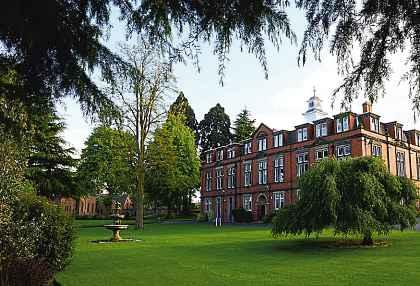
Wrekin College is celebrating a string of prestigious national awards in both music and sport.
The Wellington school has also announced further plans to update facilities with work due to start on a new Design and Technology school in 2023.
has proved aparticularly successful one for Wrekin which has been shortlisted in the Independent Schools of the Year Awards in both the Sports and Performance Arts (Music and Drama) categories.



The news comes after the school’s Jazz Band and Concert Band were awarded the top platinum prize at the NCBF national final in Manchester in April.
It was afirst awardfor the concert band in their debut at the event and a hat-trick for the Jazz Band which as a result was commended for consistent outstanding performances.
The sport department has also

enjoyed one of its best performances in the 2021/22 academic year,being named one of the country’stop senior cricketing schools in the Cricketer Schools Guide 2022 and the netball first team achieving coveted bronze medals at the Under 19 national finals.
Wrekin College has invested significantly in recent years to give pupils awiderange of opportunities to explore and develop their talents. Anew Business
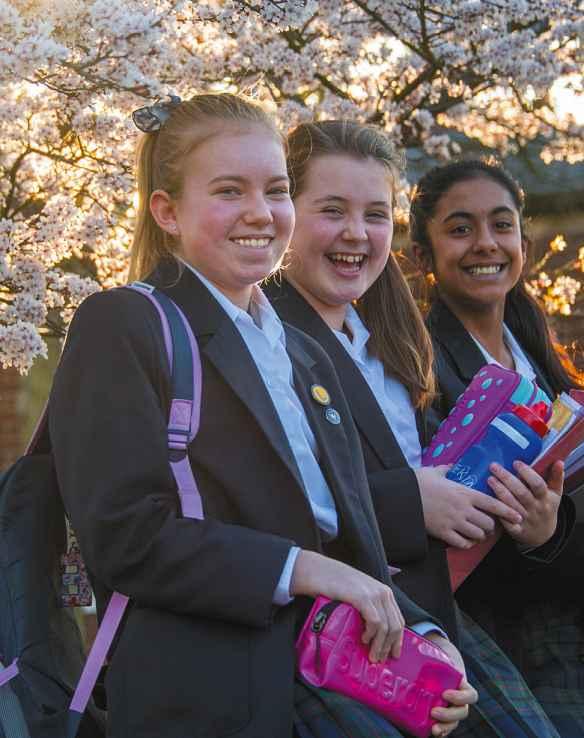
School was opened in 2017 followed by arevamped library and Sixth Form Centre, new Music School, Dance Studio and second all-weather playing surface.
Afocus on developing employability skills has opened up new career paths and also seen children thrive as independent thinkers confident to make even more ambitious choices for their education and their futures.
The majority of this year’s sixth formers have secured highly sought-after offers at top universities and apprenticeships with some of the UK’stop accountancy firms.
Headmaster Mr TimFirth said he was extremelyproud of the Wrekin College community,which had faced some tough challenges during the pandemic but had emerged even stronger,with acontinued determination to strive for success across the board.
FIND YOUR www.wrekincollege.com admissions@wrekincollege.com 01952265603 Book your placenow: SATURDAY 8TH OCTOBER OPEN DAY Enjoyatour of our school, hear from staff and pupils, and ask anyquestions youmay have about the admissions process.
Independent co-educational day and boarding school
11-18 Wellington, ShropshireTF1 3BH RegisteredCharity No: 528417 FUTURE AT AWARD-WINNINGSCHOOLISINVESTING IN THEFUTURETOOFFERSTUDENTSAWIDE RANGEOFOPPORTUNITIES TO EXPLOREAND DEVELOPTHEIR TALENTS
This year
27 Education| COMMUNITY
Bridgnorth EndowedSchool
Anew headteacher has taken over the reins at Bridgnorth Endowed, bringing with him awealth of experience and expertise as the school continues to go from strength to strength.
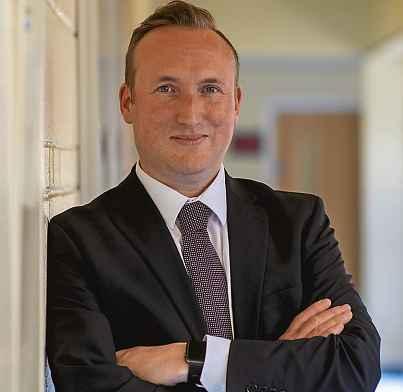
Michael Penn made the move after ten years in senior roles at Birmingham Ormiston Academy,and is delighted to lead the school with his clear vision for the next exciting chapter
As well as striving to deliver the highest possible standards in education, he is passionate about encouraging students to engage with the world around them –through the arts, cultureand sport.
An extraordinary array of clubs and activities areonoffer at BES, and the focus is firmly on developing well-rounded young people who areable to discover their unique talents in an environment that allows them to thrive.
Set in 30 acres of beautiful grounds
with sports pitches and an historic Old Hall, the school enjoys its own on-site leisurecentre, and afantastic location in the heart of Bridgnorth.
Previously the town’sgrammar, Bridgnorth Endowed has alongand rich


history that dates all the way back to 1503. Today,it’savibrant, forwardthinking co-educational secondary school for 600 pupils aged 11 to 16.
Its size is certainly abenefit, as being asmaller school means there’s areal sense of community,where staff areable to get to know every student and wellbeing is prioritised above all else.
Pastoral careisexceptional and students feel secureand happyinan atmospherethat is calm, caring and built on mutual respect, both inside and outside the classroom.
Bridgnorth Endowed is inviting prospective pupils and parents to exploreall it has to offer at an open evening on Wednesday 5th October.School tours arealso available in September and October To book your place, please visit www. bridgnorthendowed.co.uk or call 01746 762103.

OPEN EVENING Join us for the next exciting chapter Wednesday 5th October 2022 6pm to 9pm SCHOOL TOURS AVAILABLE TOO www.bridgnorthendowed.co.uk | n 01746 762103 NEWHEADTEACHER STRIVING TO DELIVERTHE HIGHESTPOSSIBLESTANDARDS IN EDUCATION, WHILEENCOURAGING STUDENTS TO ENGAGE
WITH THEWORLD AROUND
THEM
28 Education| COMMUNITY
Thomas TelfordSchool
Admission to Year 7 September 2023
Applications are now invited from those interested in gaining aplace for their child in Year 7inSeptember 2023. Confirmed by OFSTED as an Outstanding School (report can be accessed from www.ttsonline.net), the School caters for children of all abilities. Education is free and anon-competitive entry scheme operates which means anyone who lives in the catchment area can apply.
youlive either in Telford or in the City of Wolverhampton or in postcodes WV6, WV8 and WV9 and your child is 11 years old by 31 August 2022, your child may be eligible for aplace. Full details about the type of education available at Thomas Telford School can be found in the Prospectus which, together with the Rules of Admission and an Application Form, can be accessed from 1st September at: www.ttsonline.net
can obtain an
by
Office, Thomas Telford School, Old Park, Telford TF3 4NW
If
Alternatively you
application pack
emailing admissions@ttsonline.net or calling 01952 200000 Admissions
Closing date for application is Monday 26 September 2022
TelfordCollege
TelfordCollege is the largest further education centreinShropshire–and that means it really does offer something for everyone.
The wide-ranging curriculum includes A-levels, apprenticeships, technical and vocational courses, university-standard and adult education programmes ...and much, much more.
Millions of pounds have been spent on upgrading the Haybridge campus in Wellington with cutting-edge equipment.
It includes avirtual and augmented reality training suite, £2.5 million ‘7th Form Centre’ for A-level studies, construction and automotive workshops, music studios, and ahi-tech creative hub.
The campus is also home to The Orange Tree restaurant, wherecatering students learnina realistic kitchen environment –and The Retreat, afully functioning hair and beauty training salon which is open to the public.
When it comes to sport, Telford College scores too. It has some of the best facilities in the region, including a giant indoor dome, outdoor 3G all-weather pitch, and well-stocked gym facilities.

And with links to morethan 700 employers, thereare no shortage of opportunities for students to enjoy valuable work placements.
Graham Guest, the college’sprincipal, says: “Education is changing fast, and so arethe skills which employers arelooking for.Wetalk to them all the time –sowe know exactly what they want.
“Our A-level provision is in the top 10 per cent in the country,and we have 100 per cent pass rates across many of our courses.
“Gaining qualifications will always be
important, but today’sstudents also need to leave college fully prepared for the world of work.
“That’swhy,alongside their studies, we work with students to build their confidence. We also give them chance to gain valuable work experience so they can see what life is really like in the workplace.”
TelfordCollege has been officially rated as ‘Good’ by Ofsted this year,and prides itself on achievement rates which are comfortably above the national average.

In arecent survey,98per cent of students praised the support from tutors, and 95 per cent said they would thoroughly recommend the TelfordCollege experience.
Graham says: “Wewant to raise the aspirations of our students, helping them to set realistic but ambitious goals. A happy college is asuccessful college, and we work very hardoncreating afriendly and supportive environment.
“HereatTelfordCollege, students always come first. We want to help people achieve for life –and not just for the time they arewithus.”
Want to know moreabout what Telford College hastooffer? Check out the website for information on all the courses, and the regular open events which offer aperfect opportunity to visit the campus, and meet staffand students. See www telfordcollege.ac.uk
30 Education| COMMUNITY
COLLEGEAIMSTORAISE
THEASPIRATIONSOF STUDENTS,HELPING THEM TO SETREALISTIC BUTAMBITIOUS GOALSTOPREPARE THEM FORTHE WORLDOF WORK
TheTelford LangleySchool
The TelfordLangley School continues to attract recognition for the learning and achievement secured for its school community

The school is now well established as part of the Communities Academies Trust, which comes with astrong track recordfor ensuring that the schools within their group provide the highest quality education, including providing the support necessary for schools to become rated outstanding by Ofsted.
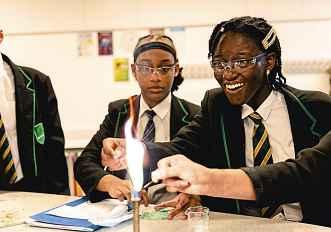

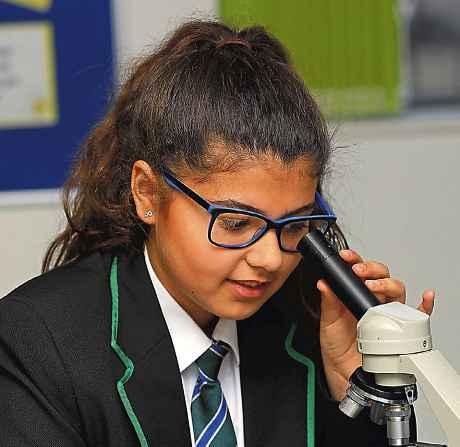
The most recent Ofsted inspection for Langley resulted in ajudgement of ‘Good’ overall with ‘Good’ judgements in all areas of provision. The report notes that leadership in the school is having a significant impact to ensurethe highest expectations for teaching, achievement, attendance, and behaviour.

The TelfordLangley has seen improving GCSE results in recent years and received recognition from The Parliamentary Review for the rapid
improvements that have been achieved.



Following an invitation from The Rt Hon David Curry,the school was included in the Parliamentary Review,representing ‘best practice’ in secondary education.

Further recognition for the school has come from the ‘Renaissance’ organisation which works with schools across the country to develop student reading and comprehension. The TelfordLangley Schools was one of only three schools out of 6,000, who achieved ‘Master School’ Status for their excellent work in this area.
The TelfordLangley School boasts state-of-the-art facilities for sport, the arts, science, technology and ICT
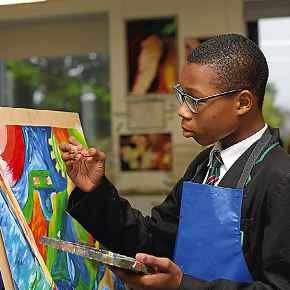
The leadership continues to embrace the motto ‘Ensuring Excellence’ and this has certainly been evident so far Headteacher Steve Carter said: “The pupils continue to respond superbly to our very high expectations, formal dress code and the early start to the school day.”
‘Ensuring Excellence’ is the theme in all aspects of school life. Afocus on excellent standards of academic achievement, along with astrong emphasis on outstanding behaviour, is the norm. Thereare also significant opportunities for students outside the planned curriculum.


Acombinationofgreat facilities, strong leadership and asponsor with aproven track recordfor ‘Ensuring Excellence’ point to afuturewhich is extremely bright for everyone associated with the school and the community it serves.


Visit our school website for further details: www.telfordlangleyschool.co.uk sit our for OPEN EVENING Thursday 6th October 2022 Tours with the headteacher at 8.30AM and 9.30AM Please phone or book online (bookingline opensmid-September) THE TELFORD LANGLEY SCHOOL Please call 01952 386700 The Telford Langley School named for “best practice” in The ParlimentaryRevi v ew ASCHOOL
WITH GREATFACILITIES, STRONG LEADERSHIP ANDAPROVENTRACK RECORD FOR“ENSURING EXCELLENCE”,ISPUTTING PUPILS ON PATH TO ABRIGHTFUTURE
31 Education | COMMUNITY
Thomas Adams
Founded in 1650, Thomas Adams is asuccessful co-educational community school, sixth form and boarding house in the centreofWem, North Shropshire.
We provide asupportive environment in which our students areable to uncover their underlying talents, their passions and their interests that will lead them towards a positive and bright future.
We take pride in the way in which students areguided and challenged every step of the way,fromthe transition from primary school in Year 7towinning places at competitive universities in Year 13. We respect each other,wecelebrate success and we instil resilience, preparing children for tomorrow’sworld.
We understand that for young people to achieve their potential they need to feel happy,safe and valued. Therefore, our pastoral system is at the heart of everything we do. Our caring ethos, combined with close monitoring of attendance and progress, gives parents the reassurance that we will take action promptly if concerned.
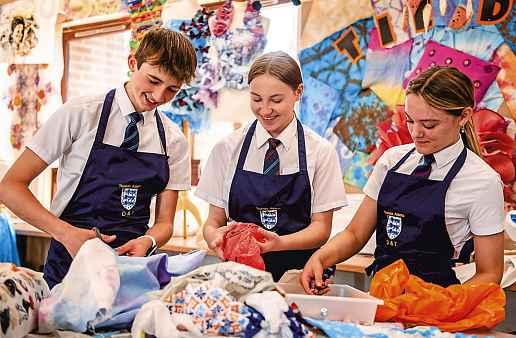
Students attend Thomas Adams from our local primary schools and many moretravel from awider catchment area on subsidised buses that run from Whitchurch, Shrewsbury,Market Drayton, Hodnet, Baschurch, Oswestry and Ellesmere. The school is renowned for its Music, Sport and Drama provisions. We have specialist centres for these subjects including full performance facilities, amultiuse sports centre, extensive playing fields and afitness suite.
Thereare twomain sites on our 30acrecampus. The Lowe Hill buildings cater for Years 7-11, providing excellent facilities for all curricular areas. At the Noble Street
site we have our Sixth Form, housed in the attractive grammar school building. We offer morethan 25 subjects at A-level and BTEC combined with acommunity feel and excellent pastoral care.

We also have athrivingboarding provision, Adams House, which accommodates students from the UK and from overseas. Adams House is a state boarding school for students aged 11-19. Increasingly,parents arechoosing state boarding schools ahead of boarding in the independent sector as they see that they can obtain the education and exceptional pastoral carethey areseeking for afraction of the cost. Parents pay only for boarding, and the government pays for education as it would at any other state school in England.
By selecting Adams House, parents
arechoosing top quality boarding care, with staffwho areabsolutely committed to the wellbeing of young people.
It’saunique setting that promotes common experience, friendship, trust and honesty between young people and adults. We celebrate diversity and arepleased to welcome students from avariety of cultural, religious and ethnic backgrounds.
The lessons in life learned at Adams House will lay asolid foundation for adulthood, and friendships aremade that last forever
To truly understand our supportive atmosphereand ethos, come along to our Open Events taking place in the autumn term. For further information, please visit www.thomasadams.net or call 01939 237000.

32 Education| COMMUNITY
SCHOOLOFFERS ASUPPORTIVEENVIRONMENT IN WHICH YOUNGPEOPLEFEEL HAPPY, SAFE ANDVALUEDAND CANFLOURISHTOREACH THEIRFULLPOTENTIAL

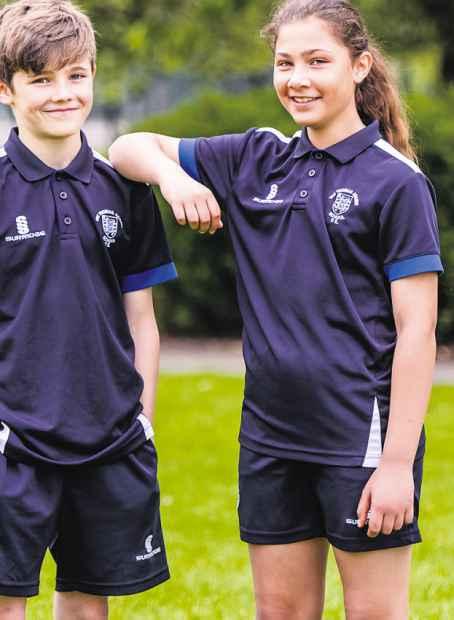









Burton BoroughSchool
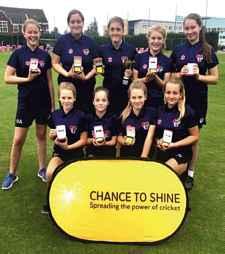

Burton Borough School is a fantastic inclusive secondary community school in Newport, Shropshire, where each person has the firm belief that















students, no matter what their backgrounds, needs or abilities areable to succeed and reach their full potential.
arevery proud of our students
in 2021, 78% of them achieved



9to4(A** to C) in both English and Maths.



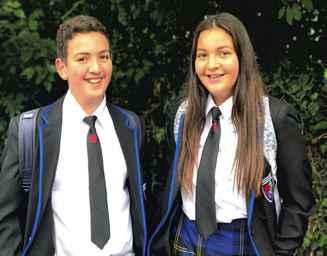
Academic success is not the only achievement we celebrate. We understand that different students have different gifts and we nurturethese to give all students asense of fulfilment and pride. From September 2022, each student will participate in ‘Period X’, a wonderful programme of extra-curricular and enrichment activities once aweekthat ensures students areequipped with the necessary skills for working life in the 21st Century
The work we carry out on mental








health and wellbeing has gained national recognition, with Burton Borough being the first school in the West Midlands to achieve the Carnegie CentreofExcellent Mental Health Gold Awardand the first school to be recognised for our work on mental health by Public Health England.
We have extremely high expectations for all our students so that they are


prepared for the next stages of their life, no matter whereitmight take them.
We want our students to be wellrounded individuals who areable to compete with their peers, not only nationally,but internationally Want to find out more? Why not follow us on Twitter or Instagram @BurtonBorough for daily updates!


Come andjoin ourfantastic school! 78% of students achievedboth Englishand Mathsin2021at grades9 to 4(A**toC) Burton BoroughSchool, Audley Avenue, Newport Shropshire TF10 7DS Tel: 01952 386500 Email: main.bbs@taw.org.uk @BurtonBorough @BurtonBorough We are an inclusive school with a firm belief that all students, no matter what their backgrounds, needsor abilities, areabletosucceed andreach theirfullpotential with theexcellent teaching andguidance of ourstaff. Whynot come and see foryourselfatour Open Eveningand Open Mornings?Followusonsocial media foreventinformation throughout theyear! ASCHOOLWITHHIGHEXPECTATIONS FORSTUDENTSSOTHATTHEYARE PREPARED FOR THENEXTSTAGESOFTHEIR LIFE,NOMATTERWHERE IT
MIGHTTAKE
THEM
all
We
and
grades
34 Education| COMMUNITY
TheTelford Priory School
SCHOOL AIMS TO HELP PUPILS DEVELOPTHEIR OWNTALENTS ANDINTERESTS AND INSTILSINTHEMASENSE OF PRIDEINWHO THEY AREAND WHAT THEY CANACHIEVE
The TelfordPriory School is anew school which opened in September 2015 with the capacity for 1,200 students.
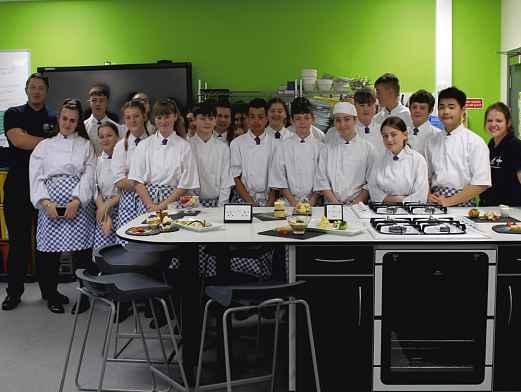
The facilities at the site include a Learning Resource Centretoencourage alove of reading and independent research skills; adedicated ICT iMac suite and well-equipped art and technology facilities; a300-seat theatrewith multiple performance opportunities; excellent sports facilities including 3G pitch and full use of the leisurecentre including gym, swimming pool, tennis courts, and full athletics track and field facilities.

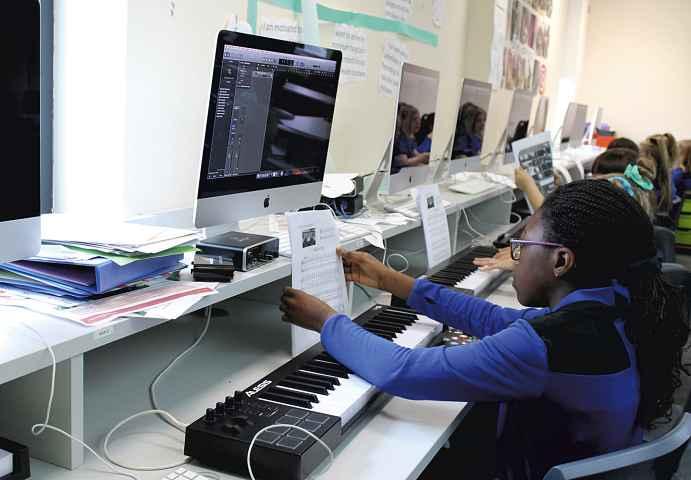
The school is sponsored by The Community Academies Trust (CAT) which has atrack recordofachieving and sustaining OUTSTANDING schools.
Our approach is based on a fundamental belief that all young people have talent and the potential to achieve morethan they ever thought possible. That achievement will be in three main areas:
Academic:Excellent standards and outstanding progress areaprerequisite for success in life equipping young people with the skills and knowledge they will need to be successful, happy and productive citizens.
Social:Excellent relationships for learning areaprerequisite for all other achievements. Relationships that engender mutual respect between young people, and all other members of our academies’ communities will ensure learning can be fun in adisciplined and caring environment wherethe highest expectations arethe norm.
Personal:All youngpeople achieve things they can be proud of every day in addition to academic success and outside our school’splanned curriculum. We have avital role in ensuring individuals develop their own talents and interests and have aresponsibility to instil in them asense of pride in who they areand what they achieve.
The TelfordPriorySchool works closely with The TelfordLangley School and The TelfordPark School and our students, parents and carers to raise achievement, aspiration and self-esteem for all.
The TelfordPriorySchool is constantly looking to build new partnerships and
improve the life chances of its students. Performing Arts opportunities, Business Enterprise occasions and sporting events and training arejust part of the curriculum and enrichment on offer
We believe that all students should thrive in their learning environment and be able to identify their own passion aspiring to be the best that they can be. Staffat The TelfordPriorySchool arededicated to all students and offer support above and beyond the traditional school day
To find out morevisit www. telfordprioryschool.co.uk/ or our dedicated expressive arts website www.tpsexpressivearts.co.uk/
35 Education| COMMUNITY
TheLearningCommunity Trust
The Learning Community Trust has three secondary schools in Telfordunder its wing –Hadley Learning Community, Ercall Wood, and Charlton.
It was fantastic to see students once again celebrating excellent GCSE results in 2022 to cap offanother incredibly successful year
Therehas been much to celebrate both in and out of the classroom.
HLC received aglowing report from education watchdog Ofsted this summer in its first monitoring visit since the pandemic. Inspectors said therewas enough evidence to suggest it would be officially judged as ‘outstanding’ in afull inspection.
The report said: “This is aschool which sits at the heart of the local community Pupils areproud to attend here, and wear their uniform with pride. Leaders understand the community they serve exceptionally well.
“They have developed ahighly ambitious and inclusive curriculum parents arehighly complimentary about the school’swork.”
Trust chief executive Dr Gill Eatough added: “Wehave worked very hardto strengthen both our academic curriculum, and the broad range of enrichment opportunities offered, and so it was pleasing to see this being acknowledged.”
The report praised HLC’steam for continually reviewing and adapting the curriculum in response to the needs and aspirations of pupils, who weredescribed as ‘attentive and engaged positively with their learning’.
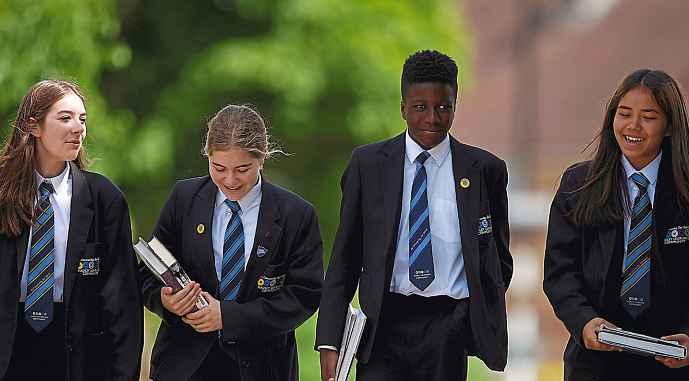
At Charlton,meanwhile, headteacher Andrew McNaughton said the school was delighted to have once again been able to
Charlton
offer ‘so many great opportunities’ since the end of lockdown.
They include many competitive sports, away days, music and dance festivals, STEM events, enterprise activities, and in-person work experience.
One of the entertainment highlights of the past year was ‘Charltonbury’ –the school’svery own version of Glastonbury –which attracted hundreds of visitors for a feast of craft, food, music, dance, games and drama.

It’spart of the Learning Community Trust’smission to not only provide the very best education wherechildrenexcel academically,but to play an active role in their communities too.
Charlton is also continuing to invest in equipment and facilities, upgrading lots of student laptops, and building athirdfixed ICT suite.
At Ercall Wood,students continue to excel and make headlines both in and
HLC ErcallWood
out of the classroom. Parents and carers completed asurvey at arecent year seven parents’ evening to give feedback on the work being done in the academy
It found that 100% would recommend Ercall Wood Academytoanother parent, and felt therewas agood range of subjects available
On the sports field, Ercall Wood Academy’smixed football team made it to acup final which was played at AFC TelfordUnited’sNew Bucks Head stadium.
Three year 10 students also reached the UK finals in the televised Junk Kouture2022 competition with a‘1950s Red Riding Hood’ creation, made from recycled materials.
Enrichment activities continue to be expanded, and the Academy has also launched anew Coding Club, while students raised morethan£1,000 for SevernHospice from the Ercall Wood Charity Week.

36 Education| COMMUNITY
THREEMEMBERSCHOOLS GOINGFROMSTRENGTHTOSTRENGTHWITHPLENTYTO CELEBRATEAND AVITAL ROLE TO PLAY IN THEHEART OF THEIRLOCAL COMMUNITIES





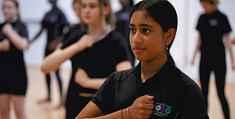

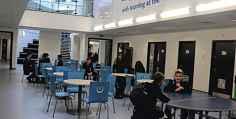
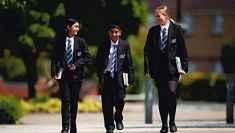

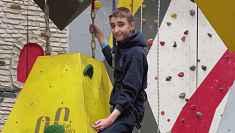
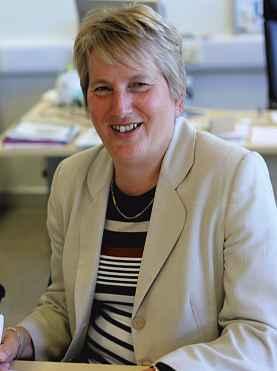


If youare interested in further information please visitthe Trustwebsitewww.learningcommunitytrust.co.ukoremailenquiries@learningcommunitytrust.co.uk. HadleyLearningCommunity Crescent Road Hadley Telford TF1 5JU 01952 387000 http://www.hadleylearningcommunity.org.uk/ Ercall Wood Academy Golf LinksLane, Telford TF12DT 01952387300 http://www.ercallwood.co.uk/ Charlton School Apley Avenue Wellington Telford Shropshire TF1 3FA http://www.charlton.uk.com/ HADLEY LEARNING COMMUNITY OurCommunity, OurSchool Excellence through challenge and initiative Advancing Schools Inspiring Learners Transforming Communities The Learning Community Trust invites you to its secondary academy Open Evenings. Key dates for autumn 2022 are: HADLEY LEARNING COMMUNITY: Tuesday September 20th, 5pm ERCALL WOOD ACADEMY: Wednesday October 5th, 6pm CHARLTON SCHOOL: Thursday October 13th, 5pm If you are unable to make these dates, please don’t hesitate to contact the individual schools to make other arrangements “We are passionate about our schools and on providing the very best education where children excel academically, are safe, happy, well cared for and grow up to understand respect and responsibility as young adults in our society,” –DrGill Eatough, CEO of Learning Community Trust
TrustEdCSATAlliance
Astrong new family of schools has been created to securestrong education for many of Shropshire’s children, serving the areas of south Shropshireand Shrewsbury.
The new Trusted CSATAlliance has been formed by joining together the Central ShropshireAcademy Trust (CSAT), &Trusted Schools’ Partnership. This new group is made up of nine local schools with five secondary schools and four primaries.
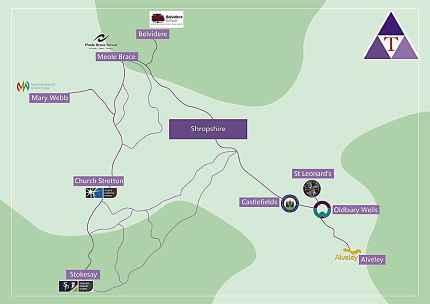
The TrustEd CSATAlliance is made up of: four primaries –Alveley Primary School, Castlefields Primary School, St Leonards CE Primary School and Stokesay Primary School; and five secondaries –Church Stretton School, Mary Webb School and Science College, Meole Brace School, Oldbury Wells School and BelvidereSchool.
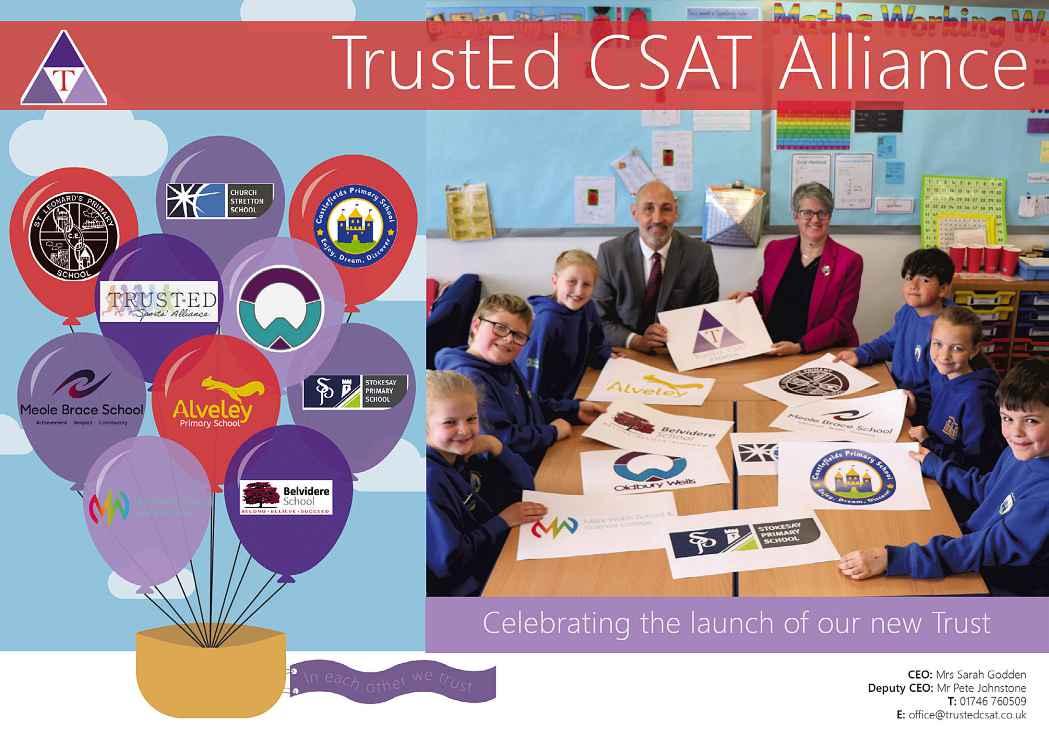
“All of our new family of schools work together as ateam to strengthen
the education we provide,” said Sarah Godden, CEO of the new Trust. “We look forwardtothe years ahead, as we collaborate to provide great education for our communities into the future.”
“Our Trustisbuilt on strong values of community,quality education and collaboration,” explained Pete Johnstone, Deputy CEO. “It was wonderful to hold our first TrustAwards Ceremony this summer
and to awardprizes to students for values such as kindness, community service and strength of character Congratulations to all our prize winners across the nine schools.”
The Trustalsoruns the highly successful TrustEd Sports’ Alliance, which this year has provided community sports events for children in 44 Shropshireschools, through their sports bases at Oldbury Wells School and Church Stretton School. Next year this will be extended into the Shrewsbury area.
“Wehave had aphenomenal year in getting sports events under way across southeast and south Shropshire,” said Chris Jew head of service.
“Now that our Trust has grown, we will be offering our sports service to primary and secondary schools in the Shrewsbury area too, from our centreatMeole Brace School.”
NEWFAMILYOFSCHOOLS WORKINGTOGETHERTOHELPSTRENGTHENTHE EDUCATION
PROVIDED TO CHILDREN IN COMMUNITIES ACROSS SHREWSBURY ANDSOUTH SHROPSHIRE
38 Education| COMMUNITY
OldburyWells School
Aclear vision…to deliver an Inspiring Education that Inspires the Lives of those within our community by meeting the needs of every individual; this is at the centre of our work.
As adynamic, forwardlooking school located in the historic town of Bridgnorth, we areextremely proud of all our students’ achievements.
As aschool and sixth form, we arealive with learning, ensuring everyone continually improves to be the best they can while developing individual interests and talents. We aim for all our students to further gain in confidence and ASPIRE to make the best progress in all they do within asafe, caring, and supportive environment.
We have highexpectations and high levels of achievement and ensure ENJOYMENT is at the heart of all our
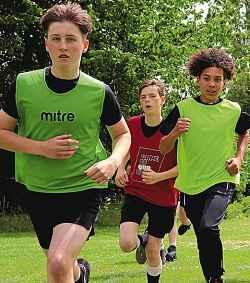
work. We provide high quality experiences through an exciting curriculum and extensive wider opportunities, ensuring our school is agreat place to be and a great place to learn.

We arerelentless in celebrating everyone’sACHIEVEMENT in all aspects of their academic and personal development, ensuring everyone is fully prepared to move forwardtaking their
place in today’sdiverse society.
We value our traditions and encourage our students to have the highest expectations of themselves and others; our dedicated staffworkinsupport of every individual to help them achieve their ambitions and goals.
Our students recognise the importance of doing their best and show fantastic resilience in all they do; this leads to excellent examination results at all levels which arerecognised locally,regionally,and nationally as being exceptionally strong.
Our blended approach of academic rigour and enrichment opportunities ensureour school is ‘a lovely place to be and agreat place to study and work’ (OFSTED). We look forwardtowelcoming families to our open events to find out more.

OFFERING HIGH QUALITYEXPERIENCES THROUGHANEXCITINGCURRICULUMAND EXTENSIVEWIDER OPPORTUNITIES,ENSURINGOUR SCHOOL IS AGREAT PLACETOBE
39 Education | COMMUNITY
Lakelands Academy


in the heart of Ellesmere, Lakelands Academy is surrounded by beautiful lakes and stunning countryside.

Staffare committed to providing the very best education for the children of Ellesmereand itssurrounding villages.
school takes its responsibilities to families and the local community very seriously and, as arespected and trusted centreofthe local community,the aim is to help it develop and prosper
is acollaborative and outwardfacing academy –openness, trust, honesty and integrity areessential to the way staffwork.



Aspokesman said: “Weare asmaller school for students aged 11-16 and with this advantage, we know all our students personally.Weencourage each student to be ahappy and self-confident individual with an inquiring mind, who respects the differences of others.
“As ahighly aspirational school, we
arefocused on delivering excellence in every aspect of our provision, creating an exciting learning environment with the highest quality facilities, wherestudents cantruly flourish.”
In 2022, Ofsted commented that ‘pupils take pride in their school’, praised
the ‘high ambitions for all pupils’ learning’, and recognised that Lakelands ‘prepares pupils well for their futurelives’.
“Wedogive our students the very best foundation for the future. We believe it is our duty to inspireevery one of them to reach their potential and face, with confidence, the next stages of their education and the fast changing world beyond Lakelands.
“Please join us for our Open Event on Wednesday,September 21 between 9.30am –12pm, 1.30pm -3pm and 4.30pm–7.30pm. We would also like to invite students to come along and enjoy Year 6Taster Day on Friday,October 7. Don’tworry if you can’tmake these dates –wewelcome visits from prospective parents and students at any time.”
n For moreinformation about the Open Event, to book aplace on the Year 6Taster Day or to arrange avisit please contact staffatadmin@lakelandsacademy org.uk or on 01691 622543.

www.lakelandsacademy.org.uk Ellesmere ShropshireSY12 0EA Telephone: 01691622543 Email: admin@lakelandsacademy.org.uk Developing ourstudentsintoconfident adults, equippedto go as farastheir talentswill take them. Come andjoinusatour OPEN EVENT Wednesday21stSeptember 2022 andbookyourchild�splace on our YEAR 6TASTER DAY Friday 7th October2022 Formore information,pleaseget in touch Ofsted ratedLakelands Good -January2022 ASPIRATIONAL ACADEMYAIMSTOCREATEANEXCITINGLEARNINGENVIRONMENT WITH THEHIGHEST QUALITYFACILITIES, WHEREALL STUDENTS CANTRULY FLOURISH
40 Education| COMMUNITY Located
The
Lakelands
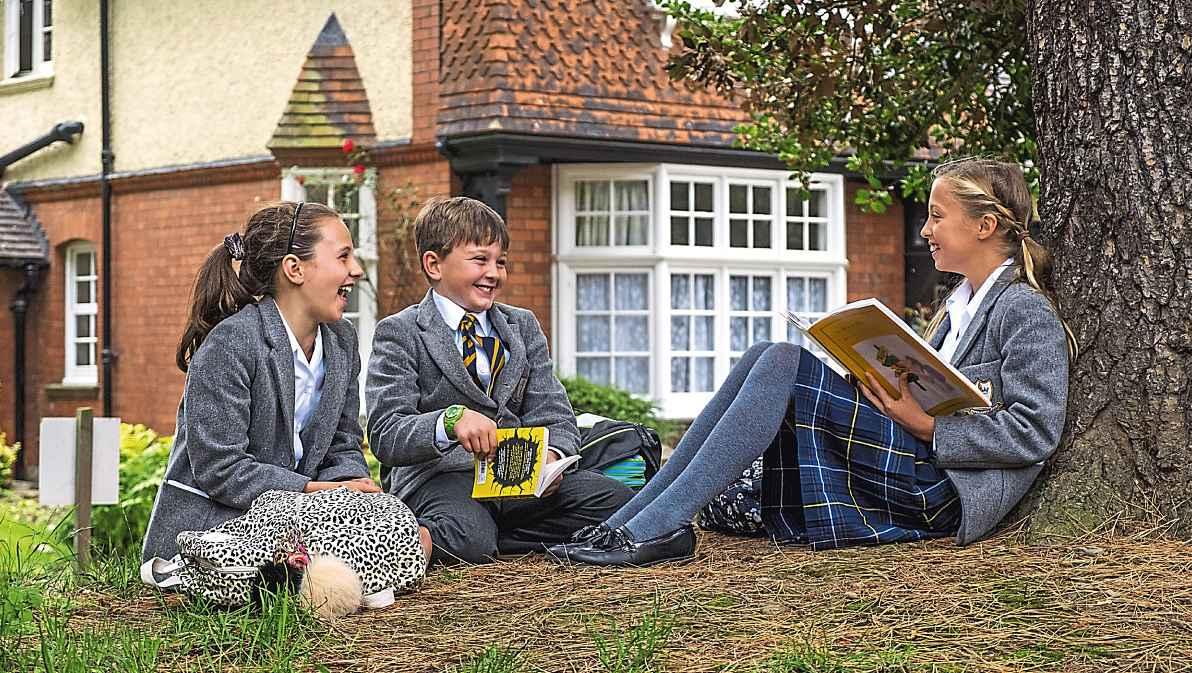
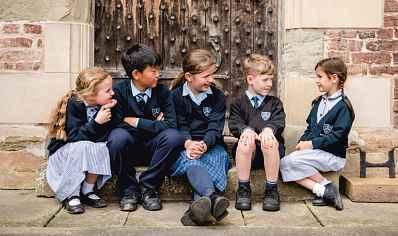
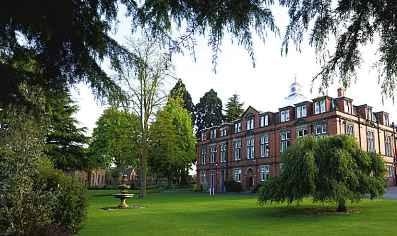

INDEPENDENT SCHOOLS GUIDE SHROPSHIRE & WEST MIDLANDS IN VE ST IN GI NT HE IR FU TU RE S Publishedby
Help with meetingcosts of privateschooleducation
Many parents will rule out fee-paying schools for their children because of the costs involved.
But most independent schools, often known as private schools, will offer financial assistance in the form of scholarships or bursaries for pupils.
Fee-paying schools tend to have small class sizes, excellent exam results and a good recordofentry to top universities.
Many devote asignificant amount of time to cultural activities, like art, drama and music, and most offer awide variety of sporting opportunities.
They also offer moreteachers per 100 pupils, pastoral careand provisionfor special needs.
Scholarship and bursary applicants will usually need to prove that they are very able and demonstrate the need for monetary support.
It is estimated that almost athird of pupils educated in the private sector receives some form of financial assistance in the form of ascholarship or bursary
Not only do schools want to attract the most talented students, but many are also realising that having abroad social mix which reflects our society is incredibly important.
This is why many have funding available for pupils whose families areon lower incomes.
According to the Independent Schools Council, the total value of means-tested bursaries and scholarships provided by schools has increased by over £195m since 2011, and currently stands at £455m per year.
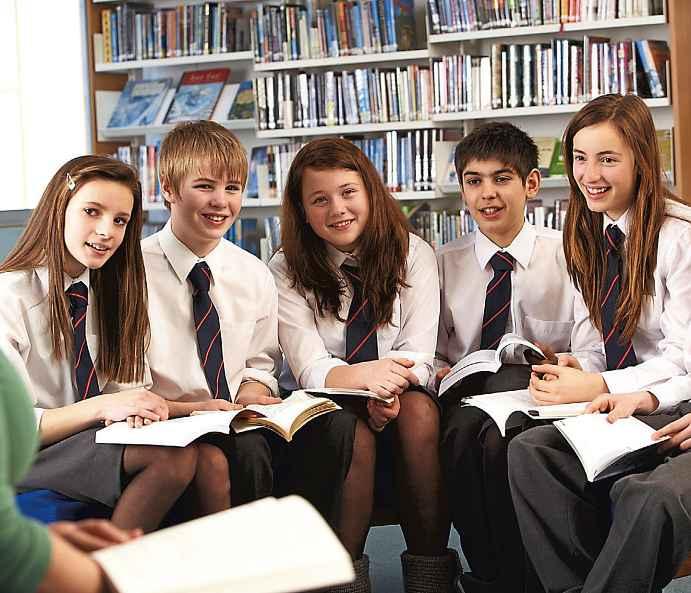
Scholarships arenot usually meanstested, but areinstead based on the child’sabilities in aparticular area.
They areusually available to pupils who arevery strong either academically or in music, sport or art.
Some scholarships offer other benefits such as extra coaching or tuition, additional trips, tours and mentoring for the duration of the pupil’s time at the school.
Bursaries are means-assessed on afinancial basis and will requireaparent
HOWTOAPPLY
n TheIndepenentSchools Council websiteallowsyou to search by school feeassistanceand other requirementstoo such as location, agerange,day andboarding.
n Once youhavelocated aschool,
or guardian to complete adeclaration to establish whether the student meets the necessary criteria.
This is usually re-assessed each year that the bursary is required.
The school looks at what it is reasonable for you to affordand sets afee accordingly
Some schools areable to offer greater bursary provision than others and they can cover up to 100 per cent of fees.
They can also
contactthe admissionsoffice to find outwhat financialsupportisavailable
n If your childwillbeapplyingfor abursary,it’sworth checking what information,suchas financialrecords, youwillneed to provide.
help with costs which arenot included in the normal school fee, such as uniform and school trips.
Thereare also charitable grant-making trusts who can help offer financial support to those who need it most.
They include The Royal National Children’sSpringBoardFoundation which provides bursaries to help disadvantaged children attend state or independent boarding schools.
Both scholarships and bursaries can be awarded to children at the same time.
For moreinformation about the different types of support available, visit www.isc.co.uk
42
Education| FEE-PAYING SCHOOLS
Shrewsbury High School
Shrewsbury High School has been educating girls in Shrewsbury since 1885.
In September 2021, junior and senior pupils werereunited on one campus when junior pupils moved into their distinct new junior school on the school’shistoric Town Walls site.
The school returned to its rootsasan all-through, all-girls school –the only one in Shropshire–educating girls allthrough from Reception to Sixth Form.
The wonderful Georgian Town Houses that have been renovated for our new junior school provide bright, airy classrooms, giving junior girls access to bespoke, state-of-the-art junior facilities and classrooms with integrated technology.With adedicated early years’ playground, Forest School, walled garden and hidden orchard, junior pupils have space to play,discover and learn.
Co-curricular opportunities abound, and we areacademically ambitious for our girls, reflected in superb academic

outcomes and the wide range of exciting post-18 destinations.
We areamong the best performing girls’ schools in Shropshire; and with initiatives such as our flagship enrichment programme, Period X, giving them practical life skills, from car maintenance and budget-friendly cooking to personal finance and leadership, our girls arereal world ready.
To support busy parents, we offer free wraparound carefrom8am –6pm

(5.30pm for seniors) and we have afleet of school minibuses that bring students in from all across Shropshireand beyond Ourwonderful location gives our pupils unique opportunities to learnfrom, and contribute to, their local community
At the Global Forum on Girls’ Education in Boston, USA, Headteacher Jo Sharrock was asked to shareher expertise on all-through all-girl education in the UK. She said: “Webelieve single sex is the best possible model to build happy,confident girls prepared for the opportunities and challenges of the 21st century.
“A girl’syears at Shrewsbury High may be the only time in her life that she will be in an environment that is designed solely with her in mind. At the most formative time in agirl’slife, experience of our environment will equip her with what she needs to thrive for the rest of her life.”
Book now for an open event or find out more: www.shrewsburyhigh.gdst.net
All-through, all-girl.
shrewsburyhigh.gdst.net

EDUCATINGGIRLS
IN SHREWSBURY FORA WORLDWITHOUTLIMITS.
We are experts in educating girlsaged 4-18. We give them space to grow and freedomtolearn.
SCHOOL NURTURES PUPILS TO HELP THEM BECOMEHAPPY ANDCONFIDENT GIRLS WITH ALLTHE SKILLS THEY NEED TO THRIVE FORTHE REST OF THEIRLIVES
43 Education| COMMUNITY
WolverhamptonGrammar School
Renowned for academic excellence and outstanding extra-curricular provision, our diverse and inclusive school offers a first class education.
Each year many students join us from schools across Wolverhampton and the surrounding counties. Our school transport offers travel options from Telford, Bridgnorth, Stourbridge, Oldbury,Walsall and Penkridge.
Whether you arecoming alone or with friends from your junior school, you can be sureofawarm welcome at Wolverhampton Grammar School. New students quickly settle and make friends supported by their form tutor and our pastoral team. We offerlots of opportunities to come into school to meet with futureclassmates, teachers and to enjoy aBBQ social ahead of the new academic year.All Year 7s also have their own induction day beforethe normal start of term.
Thereare lots of things to look forward to at Wolverhampton Grammar School, which we often refer to fondly as WGS. Extra-curricular activities arevaried and plentiful and include everything from debating, climbing, Duke of Edinburgh and magic club to Warhammer and Pokémon Go! Thereare school trips such as sports and music tours and all Year 7s go on their own residential to Oakerwood Activity Centreand experience outdoor activities such as rafting and climbing.

In Year 7, all students have their own iPad and Apple pencil. By using iPad technology,students can benefit from their own bespoke textbooks. Whilst traditional texts areavailable digitally and areused for
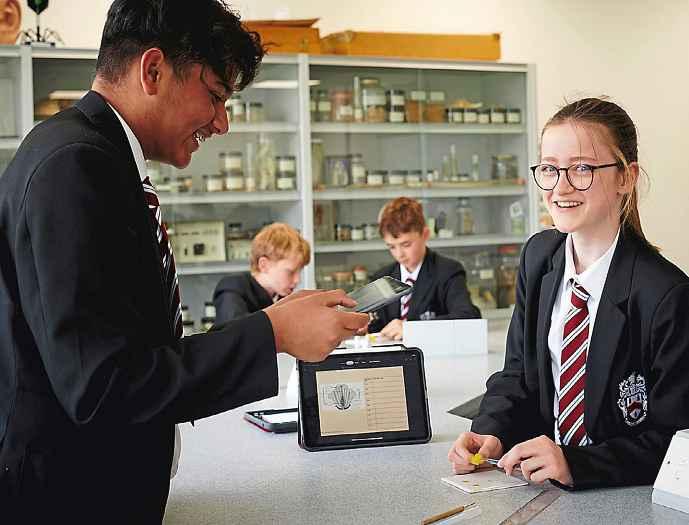
the GCSE and A-level syllabus, in Years 7 to 9students’ learning is further enhanced through customised teaching and learning resources, created by handpicking the best mix of offline and online resources. These arethen differentiated for students so that each is getting alearning experience tailored to them. Whilst this blended learning approach successfully empowers students to interrogate and investigate independently,the emphasis is still very much on outstanding staffand student relationships.
Once astate grammar school for boys, our 510-year-old establishment now
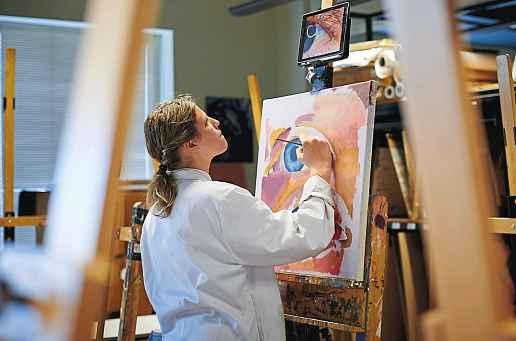
offers the very best 4-18 through-school independent education for boys and girls in the City of Wolverhampton and its environs.
Entrance to our Senior School will be assessed on Saturday 14th January, 2023, for students currently in Year 6and applications arebeing taken up until the deadline of Friday 2nd December 2022.
We highlyrecommendthat prospective families take the opportunity to visit us on Saturday 8th October to find out more. Scholarships and Bursaries arealso available for entry at age 11 years and 16+.
44 Education| COMMUNITY
ATHRIVINGSCHOOLRENOWNEDFOR ACADEMIC EXCELLENCEAND OUTSTANDING EXTRA-CURRICULARPROVISION WHICHPROMISESAWARMWELCOMETOALL


Independent Day Schoolfor Boys and Girls Junior School ages 4-11 Senior School ages 11-16 SixthForm ages 16-18 •Year 7Entry in 2023 -Application deadline:Friday2nd December •Sixth Form Entryin2023-Application deadline: Friday16th December. •Academic, Music and Sports Scholarships available. •Generous fees assistance via means testedbursaries. •A fewremainingplaces in our Junior School –enquirenow! Wolverhampton Grammar School Compton Road, Wolverhampton, WV3 9RB 01902 951869 | www.wgs.org.uk |admissions@wgs-sch.net Registered charity (Englandand Wales no. 1125268) Saturday 8th October2022 Tours at 10am and12pm We invite youtovisit us! WholeSchool OpenDay (Reception to SixthForm) Bridgnorth Telford Penkridge
Oldbury
Stourbridge Walsall
EllesmereCollege

Settled in the Shropshirecountryside since 1884, EllesmereCollege has retained its focus on individual student success while providing outstanding educational and personal success for all students whether local, regional or international.
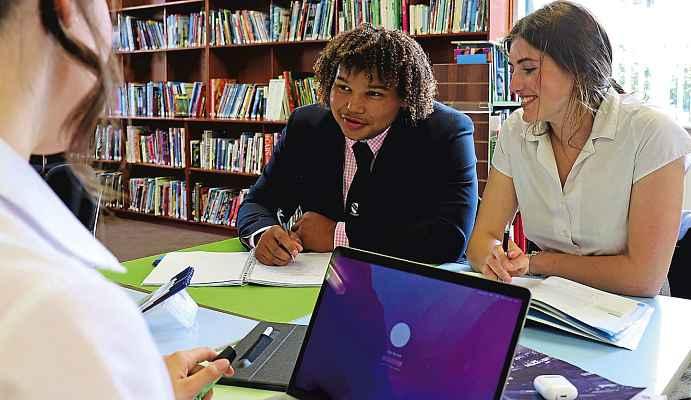
An incredibly friendly co-ed, day, weekly and full boarding school, 570 students from ages seven to 18, and from all across the globe, areencouraged to explore, engage and evolve to the best of their potential through the College’s innovative and dynamic academic and cocurricular opportunities.
The school has recently been accredited as an HPL World Class School –one of only 39 schools worldwide demonstrating their commitment to High Performance Learning in all areas across the curriculum.
At every entry point to the College –fromYear 3toSixth Form in Year 12 students areoffered abroad choice of academic subjects as well as avast range of co-curricular activities (DofE, CCF,ESB, EPQ, ILM, Survive &Thrive, John Muir Award, expeditions, career conventions, affiliations, etc) that develop essential life skills –leadership, initiative, confidence, teambuilding, and above all abelief in themselves that they can achieve if they try their best –the ethos at the heart of the school –tobe’Life:Ready’.
Academic Excellence
From age seven, students areoffered awide curriculum preparing them for their choice of i/GCSEs as they move up to Middle School at age 13 –providing subjects that appeal to all pupils’ interests and academic strengths, while keeping class sizes small.
Our award-winning DU Category Support for Learning department supports those students with diverse academic
needs including dyslexia, dyspraxia and dyscalculia. Cocurricular activities such as the ESB, John Muir Awards, Survive & Thrive and the creative arts ensurethat all children arefully engaged, learnand are prepared for the world around them.
In Sixth Form, students choose A-levels, BTEC or International Baccalaureate (IB), and students regularly gain entrance to their first-choice university including Oxford, Cambridge and Russell Group institutions. We areranked in the top 20 British schools offering the IB with students regularly attaining >30 points and arelaunching our International Foundation Programme (IFP) in the Autumn –aone year pre-universty foundation course.
Drama, Music and the Arts –Creative Enrichment
The College was the first independent school to be awarded Artsmark Platinum by the Arts Council of Great Britain for its commitment and delivery of the arts from the traditional to moremodernmedia.
Singing is an area of real excellence with five award-winning choirs and awide range of ensembles with opportunities to perform. Participation at every level is encouraged and supported by ESB, LAMDA, ballet and dance classes, and individual tuition.
Sports –Olympic Aspirations
We areimmenselyproud of our sporting tradition at EllesmereCollege, and physical education is an integral part of the curriculum –playing for ones’ house or school, or at national, international and Olympic level.
We areanaccredited WAoS (World Academy of Sport) Athlete Friendly Education Centre(AFEC), which provides greater flexibility to students so they can balance their studies with demanding training and competition schedules thereisnoneed to compromise one for the other.Thereare seven distinct Sports Academies –rugby,cricket, tennis, swimming, shooting, football and golf –aswell as High Performance Hockey Programme, basketball, netball, badminton, modernpentathlon, and rounders. We areconsistently listed in The Cricketer Top100 SchoolsYearbook, and areaffliated with IH Manchester Football Academy
We believe very strongly that the foundations for asuccessful adult life are built at ayoung age –and at Ellesmere College we empower and enrich our students to become confident, strong and exceptional young adults.
Visit: www.ellesmere.com
46 Education| COMMUNITY
OUTSTANDINGINALL ASPECTS OF ACADEMIC,COCURRICULAR, SPORTINGAND PERSONAL SUCCESS– ELLESMERECOLLEGETRULY FOCUSESONTHE INDIVIDUAL TO BE LIFE READY

Newcastle-Under-Lyme School
Newcastle-under-Lyme School strives for the highest standards, encouraging pupils to work hardand make the most of opportunities presented to them.
Newcastle-under-Lyme School (NULS) is an excellent place to learnand is one of the West Midlands’ leading independent day schools. Rated Double Excellent by ISI, NULS welcomes children from all over Staffordshire, Cheshireand Shropshire each year
Our school achieves outstanding examination results year-on-year,offering our pupils access to the best university courses, colleges, apprenticeships and futurecareers. Our motto is ‘Always striving for the highest’ and we arealways working to improve and better our school and we encourage our pupils to work hard to get the most out of their time with us.
Our campus is set in 30 acres of grounds near the centreofNewcastle and we have excellent facilities including an astro-turf pitch and aswimming pool. In
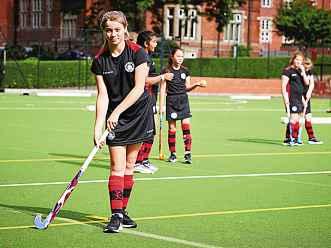
the autumn we will be opening our new multi-million pound sports facility which will include state-of-the-art facilities for netball, tennis and more, significantly developing our sporting capacity to aregion-leading level.
We have adedicated music school, art and ceramics studios, theatrespace and a beautiful library and resource centre.
For pupils joining NULS at any stage, either Little NULS Nursery,Prep, Senior or Sixth Form, we offer acomprehensive
programme of pastoral support and believe the relationships we have with families arecrucial to our success.
Alongside academic lessons, we offer awide programme of co-curricular activities. Our pupils enjoy sports, music and drama as well as activities like debating, DofE, chess and the Combined Cadet Force (CCF) which offers our pupils the chance to experience training from Army,Navy and RAF
Many of our pupils come to school on one of our own minibuses. We runawide varietyofservicesacrossthe region and welcome enquiries from new pupils.
We arealways keen to meet new families who wish to join us. We offer tours with our Headmaster by appointment and offer an invitation to join us at our Senior School Open Morning or Sixth Form Open Evening, both in October –register now at www.nuls.org.uk/events
Visit our website for moreinformation or find us on social media @nulschooluk
School
Morning
Little NULS PreparatorySchool Senior School Sixth Form

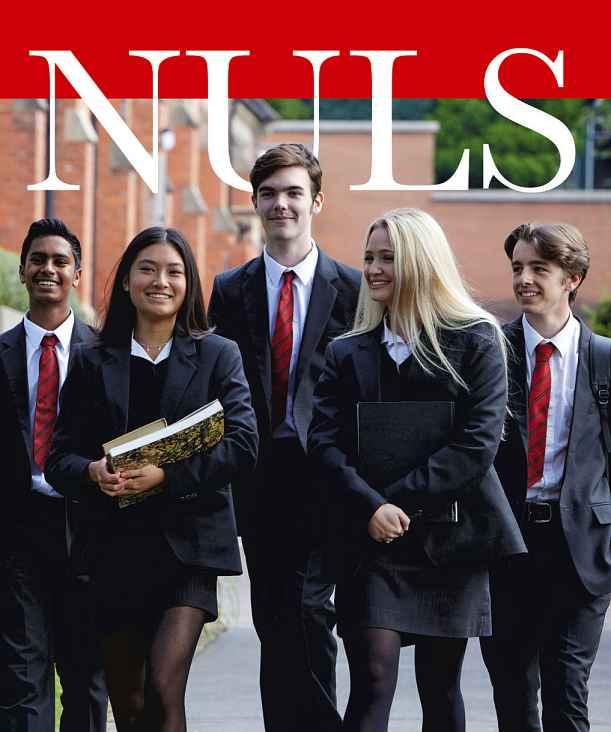
Senior
Open
-8 October Booknow at nuls.org.uk/events
48 Education| COMMUNITY
STRIVING FORTHE HIGHESTSTANDARDS ANDENCOURAGING PUPILS TO WORK HARDTOGET THEMOSTOUT OF THEIRTIME AT THESCHOOL
Castle HouseSchool
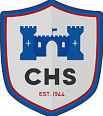
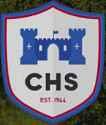
In the closing days of the summer term, the final hardcopy of the Independent School’sInspectorate (ISI) report was issued to Castle House School in Newport.
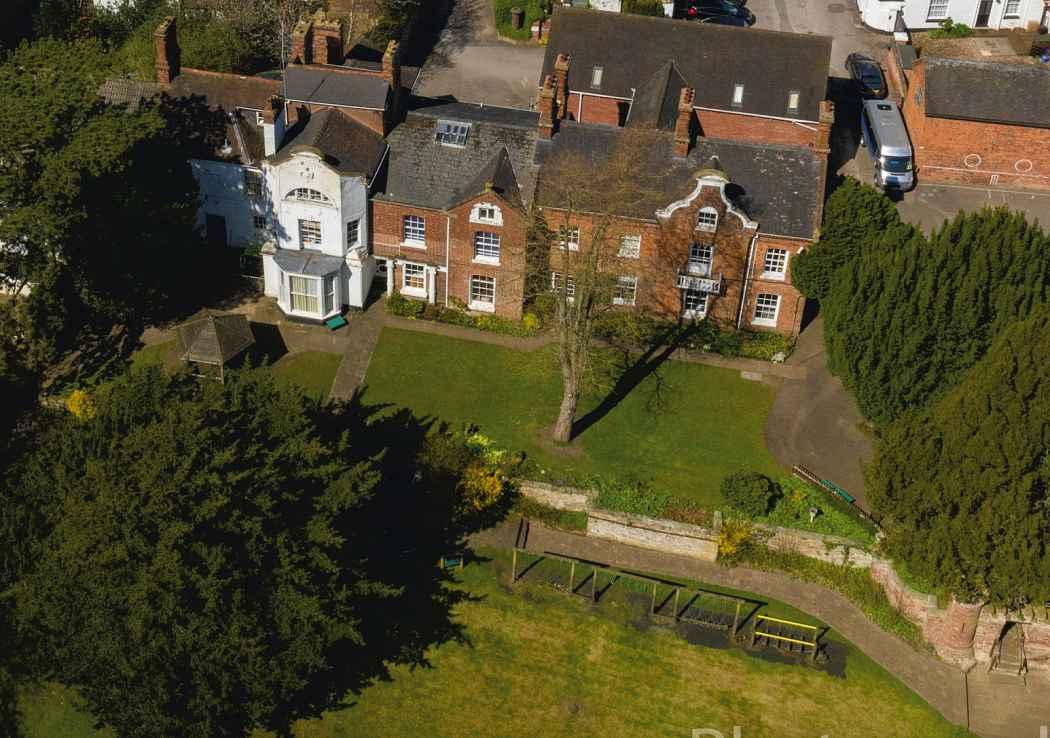
This report is the written synopsis of a weeklong inspection by ISI in June 2022.
Ian Sterling, Headteacher,praised staff, pupils and parents saying that “the inspectors really understood our school, recognising our corevalues and beliefs”.
The report, which will be formally published in September,describes how
n Pupils display excellent attitudes to their studies
n Pupils exhibit great confidence when speaking in discussions and in public
n Pupils develop good higher-order thinking skills
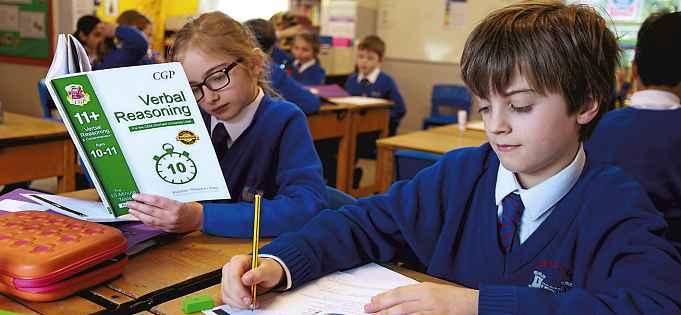
n Pupils show avery high capacity for collaborative work and thereare excellent relationships across age groups
n Pupils adherewell to the school motto of ‘kindness counts’, using this to develop
their excellent moral understanding n Pupils’ understanding of how to stay safe is excellent.
Mr Sterling went on to say: “Weare a clear example of acommunity that works together and who sharetraditional values.
“From our very youngest babies in our over-subscribed Nursery to our Year 6pupils as they depart to move on to
not only the selective grammar schools of Newport, but to local independent and state schools, our pupils aresought after and in demand.
“Our school motto, ‘Kindness Counts’, is the backbone of teaching, learning and the making of lifelong friendships. Our excellent inspection report was alovely way to end the summer term.”
Castle House Preparatory School 01952567600 castlehouseschool.co.uk Newport, Shropshire.TF107JE Critical thinkers Collaborative learners Progressive tradition ASCHOOLWHERE KINDNESS COUNTS ANDISTHE BACKBONE OF TEACHING,LEARNING ANDTHE MAKING OF LIFELONG FRIENDSHIPS
49 Education | COMMUNITY
Prestfelde School
THRIVING ANDFORWARD-THINKING CO-EDUCATIONAL DAY SCHOOLOFFERS PROGRESSIVE EDUCATION, AWEALTHOFPASTOROLCAREINITIATIVES ANDTOP-CLASS FACILITIES
With ahighly progressive and inclusive education, awealthofpastoral care initiatives, co-curricular programs and top class facilities, Prestfelde offers alearning experience with adifference.

Opened in 1929 and set in 30 acres of superb grounds, Prestfelde is athriving and forward-thinking coeducational day school for boys and girls aged three to 13 located close to Shrewsbury
At Prestfelde, over 340 children and their parents’ benefit from first class facilities in ahappy,safe, and secure environment. Aspiritofenquiry and a love of learning permeate the classrooms and playground; lessons areengaging, challenging and inspiring and pupils are encouraged to develop abroad range of intellectual, creative, practical, physical and social skills.
Parents’ busy lifestyles aresupported with outstanding wraparound childcare that is responsive and unique to modern family needs.
Prestfelde’sflexible boarding offers pupils the opportunity to develop their characters, have fun, and build lasting friendships for life.
Academic highlights arebolstered by the level of success and quality of scholarships gained by pupils in the final year group. Consistently,Year 8pupils achieve high pass rates at common entrance and aresuccessful in gaining places at their first-choice senior schools.
Prestfelde has an outstanding sporting reputation and whilst many pupils maintain high levels of competitive sport in their
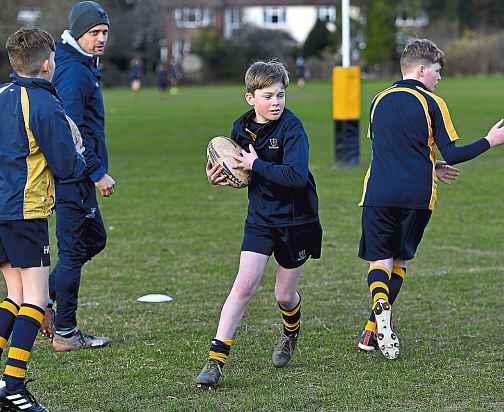
disciplines, Prestfelde recognises the importance of children enjoying the challenges of team sport at school. The co-curricular offering at Prestfelde is extensive and designed to build on pupil’s experiences with the aim of improving outcomes in all areas of their learning.
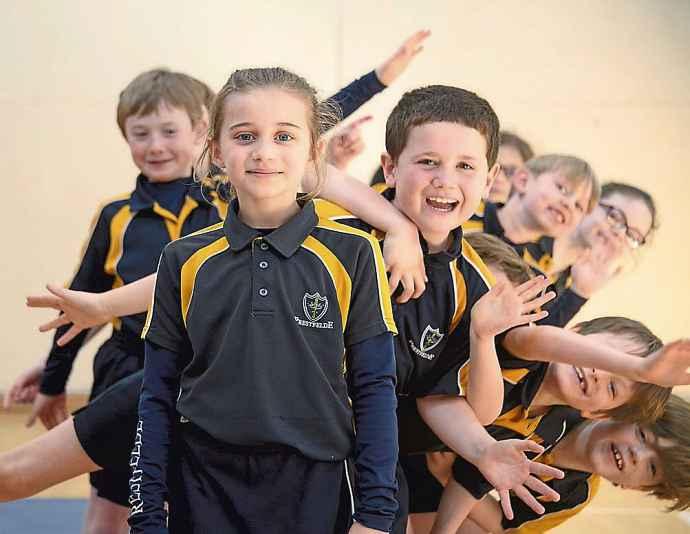
Purposefully building on pupil’s interests, Prestfelde aims to light that spark for learning and developing talents.
We understand at Prestfelde that choosing aschool for your child is one
of the most important decisions you’ll make as aparent, so we invite you to take acloserlookand be part of something special!
If you would like your child to join Prestfelde you can find out moreby visiting www.prestfelde.co.uk or by following the school on Facebook, Instagram and Twitter.Ifyou wouldlike to arrange aprivate visit please email: admissions@prestfelde.co.uk or call 01743 245400.
50 Education| COMMUNITY

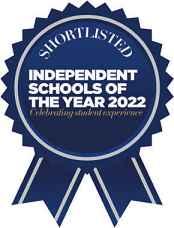
Packwood Haugh
Packwood is acoeducational, day and boarding prep school for children aged 4-13 years old.

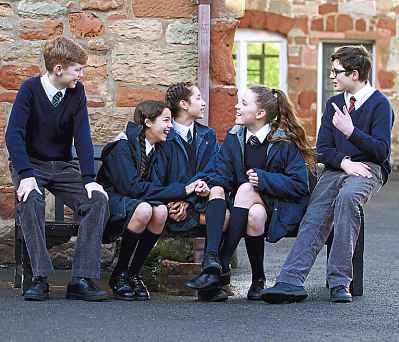

Set in 65 acres of beautiful Shropshire countryside, but only just over an hour from Manchester and Birmingham, the amazing site and facilities make Packwood atruly special place for children to grow and develop, whilst enjoying an extended childhood.

Packwood has anational and international reputation for academic strength combined with afocus on an all roundeducation in agenuinely caring environment. Small class sizes and dedicated, specialist teachers help to ensurethat every child makes the very best academic progress.
Our co-curricular programme plays a central role in school life. All pupils enjoy lessons in the creative and performing arts every week as well as playing sport almost every day.Weencourage all of our pupils
passions
well as further develop their existing
featureoflifeatPackwood
the welcoming and genuinely caring atmosphereinthe school. All pupils, whether boarders or day pupils, benefit
close
–itisso
morethan aschool with many
Packwood home.
our website at www
for more
360
grounds and facilities.
of the
Visit
Dayand Boarding Prep School forgirls andboysaged4-13
Packwood Book your visit: packwood-haugh.co.uk/admissions Email: admissions@packwood-haugh.co.uk Tel: 01939260 217 PACKWOOD HASANATIONAL ANDINTERNATIONAL REPUTATION FOR ACADEMIC STRENGTH,COMBINEDWITHA FOCUSONALL-ROUND EDUCATION IN AGENUINELY CARING ENVIRONMENT
52 Education| COMMUNITY
FACTFILE: Pupils:225 Boys:151 Girls: 74 Agerange:Fourto13 Faith: CofE Fees per term: Year 4–Year8: Day: £6,838 per term Boarding: £8,740 per term Boarding(overseas): £9,860 per term Year 3: £4,593 per term Acorns (receptiontoYear2): £3,285 per term Head:Rob Fox to discover new
and talents as
strengths. Akey
is
from the
knit community
much
staff and pupils calling
Please visit
packwood-haugh.co.uk
information and view our
video
school
Shrewsbury School
Shrewsbury School delivers whole person education in a thriving and inclusive boarding and day school community for 13 to 18-year-olds that champions the individual.



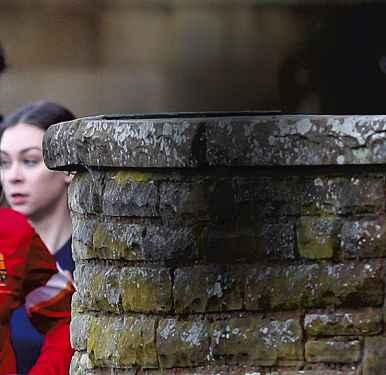
The celebration of individual talent is central to education at Shrewsbury –both in and beyond the classroom.
In whatever sphere, apupil will finda member of staff to support and encourage, enthuse and inspirethem to exceed their expectations and meet the challenges that lie ahead with confidence and good judgement.

At Shrewsbury,academic life focuses on developing intellectually curious young adults, who areable to think critically and creatively,have the confidence to question and challenge, and areequipped with the skills they will need to thrive at all stages of life.
Shrewsbury School encourages all its pupils, whatever their ability,toenjoy their life beyond the classroom, and has awellearned reputation for academic, musical and sporting excellence.

It competes internationally in avariety


of sports, with excellent facilities and coaching on offer,aswell as boasting astate-of-the art dance and drama studio in the Barnes Theatreand oneofthe strongest music departments in the country.

We believe that school should be ‘serious fun’: because learning and enjoyment go hand in hand. Learning takes place not only in the classroom, but also through a full and interesting co-curricular programme and in the pastoral and communal life of the school.
With personal pastoral care and support, we create an environment wherepupils can flourish and grow to become caring and confident members of society
AShrewsbury education will inspire and empower each individual pupil to flourish in life and contribute positively to the world around them.
VisitShrewsbury TheIndependentSchoolofthe Year 2020 Boarding andDay School forGirls andBoysaged 13-18 admissions@shrewsbury.org.uk |shrewsbury.org.uk 01743280 552 Startyourjourney now at: shrewsbury.org.uk/open-days WINNER Independent School of theYear2020 WINNER CommunityOutreachAward 2020 SHORTLISTED Boarding School of theYear SHREWSBURY SCHOOL HASAWORLD CLASS-REPUTATION FORALL-ROUND EXCELLENCE
53 Education | COMMUNITY
Oswestry School
Oswestry School was founded in 1407 and is one of the oldest schools in the country.



It is one of only avery small handful of truly independent ‘ancient’ schools without foundational links to church or monarchy.This spirit of independence and pioneering boldness continues to this day at aschool that both retains aproud sense of its history and heritage, but likewise one with afresh and modernapproachtoeducation.
This year marks amilestone for Oswestry School as it marks 50 years of co-education, afurther important staging post on its long and illustrious journey
Walking around the campus community,itiseasy to see why the school enjoys areputation as being the small family school of choice in Shropshire, and as an experienced, long-standing advocate for co-education, its curriculum
and co-curriculum alike aredesigned to provide opportunity for all.
Indeed, you arejust as likely to see girls as you areboys on the football field and cricket pitch whilst music and the arts, likewise, areequally popular amongst both.
Just 25 minutes from Shrewsbury and with the Welshhills astone’sthrow away, Oswestry School is well situated and
supports families coming from all parts of Shropshireand beyond through its extensive and wideranging bus service.

An all-through 4-18 school, the Prep School at Bellan House enjoys close relationships with the senior school, whilst astrong boarding community of both UK and international boarders enhances the vibrancy and diversity of the community.Pupils
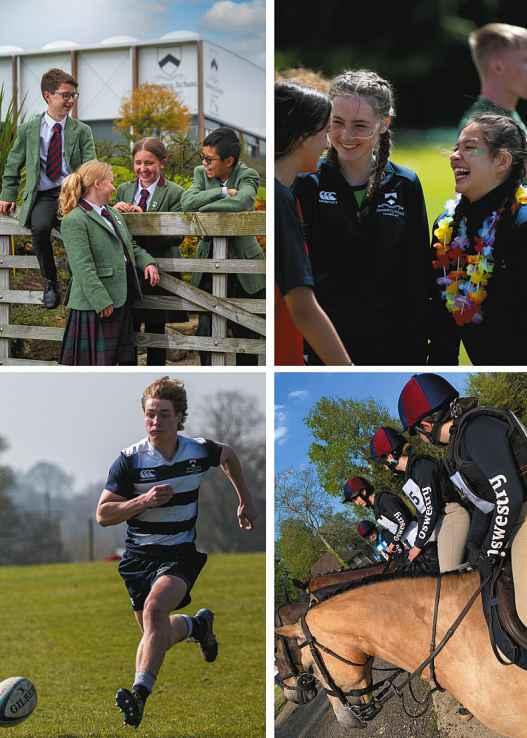
arehappy,well-supported and enjoy close relationships with staff.
Widely regarded as Shropshire’s ‘hidden secret’, this is an unpretentious, inclusively non-selective school that champions the individual and supports pupils in their aspirations whatever they may be. Don’tshout it too loudly,but with growing numbers and interest in the school, it’sincreasingly looking like the secret’sout
Reaching new heights

Join us on Saturday 1st October to explore the campus of Shrophire’s best kept secret... BOOK NOW USING THE QR CODE AN UNPRETENTIOUS, INCLUSIVELYNON-SELECTIVE SCHOOLTHATCHAMPIONSTHE INDIVIDUAL ANDSUPPORTSPUPILSINTHEIR ASPIRATIONSWHATEVERTHEYMAY BE
54 Education| COMMUNITY
BedstoneCollege
Choosing the right school for your child may seem adaunting prospect but, in reality,itisn’t!
We have allbeen through the process of choosing ahouse –thatfeltdaunting enough, but, once you crossed the threshold, you just KNEW if it was the “right one”.
Exactly the same is true of choosing schools. It is that moment when you cross the threshold, meet the children and talk with the staff, that you feel the heartbeat of the school. Youwill know instantly whether your child is going to be happy and thrive in that atmosphere.
Not every child is academically gifted, but every child has the capacity to excel at some aspect of life. It is for the school to find that area of excellence and help each child fulfil their potential, wherever that potential may lie.
Bedstone is aleading, non-selective, independent day and boarding school with astrong community atmosphereand an

enviable reputation for academic, sporting and cultural achievements.

Our Junior School caters for ages four to 11, delivers the Early Years Foundation Stage Curriculum, as well as Primary Key Stages 1and 2curriculums, and offers the ideal nurturing and enjoyable preparation
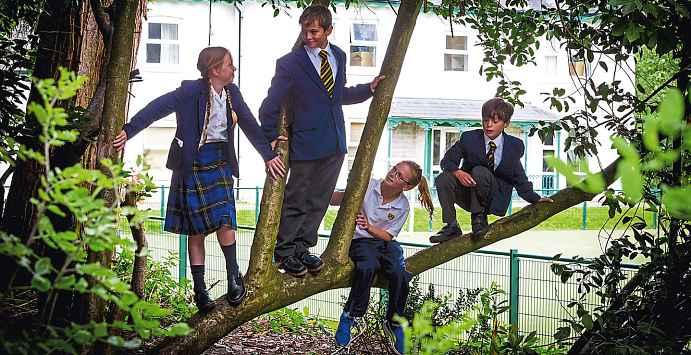
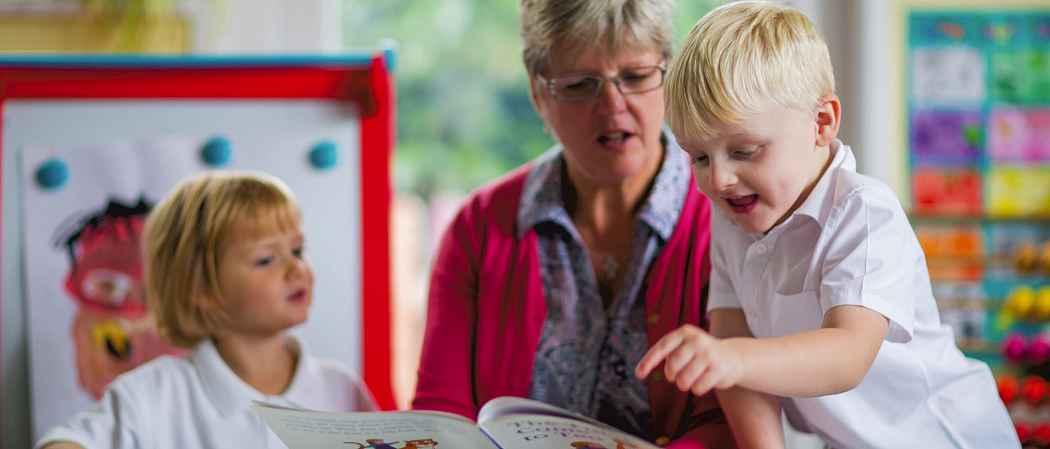
for the onwardjourney into Senior School.
If you would like to consider Bedstone for your family,then please contact our admissions department and either book aplace on an open day or arrange aoneto-one visit –wewillbedelighted to meet you.
Bedstone Open Days JuniorSchool SeniorSchool SixthForm 2ndOctober 2021 & 13th November 2021 Please contactusfor an appointmentorfor aone-to-one tour Bedstone College | Bucknell | Shropshire | SY70BG admissions@bedstone.org | 01547 530961 Supportingeverychildtoreachtheirfullpotential VisitBedstone ANURTURING SCHOOLWITHA STRONG COMMUNITYATMOSPHEREAND AN ENVIABLE REPUTATIONFOR ACADEMIC,SPORTINGAND CULTURAL ACHIEVEMENT
55 Education | COMMUNITY
MoretonHall
Moreton Hall, one of the UK’sleading independent boarding and day schools, named Boarding School of the Year by the prestigious TesIndependent School Awards 2021, is an aspirational, joyous and nurturing school, wherebelonging and ambition areintrinsically intertwined.


Moreton Hall is aschool that is innovative and creative whilst incredibly warm, familial and empathetic. It nurtures in its pupils agroundedself-confidence, the willingness to give everything agoand the self-belief to tackle any challenge head on. An atmosphereoffun and enterprise threads through all corners of the school, from the classrooms and boarding houses to the theatreand across the sports pitches.
Moreton sets academic expectations high and expertly guides each pupil to develop intellectual independence alongside emotional intelligence. Our exceptional teaching and pastoral staff lie at the heart of Moreton’ssuccess. As
aresult, pupils enjoy superb academic success and secureplaces at the nation’s most competitive universities. Pupils progress into adiverse range of elite institutions, from Oxbridge to national and international sports teams and the Royal Academy of Dramatic Art.
Located near the English-Welsh border near Oswestry,the school’sacademic and sporting facilities include everything you would expect from atop-rated
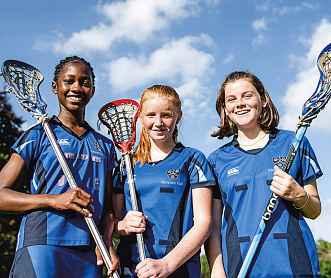
independent school, as well as asmall farm, 9-hole golf course, professional theatreand an amphitheatre.
Moreton Hall is athrough school, with anursery,prepschool, senior school and sixth form. We offer extensive bus routes throughout Shropshire, Cheshireand Wrexham.
We warmly invite you to come and discover what makes Moreton such a remarkable place.

Book your visit www.moretonhall.org MoretonHall, Weston Rhyn, Oswestry,Shropshire, SY11 3EW 01691 773671 |admissions@moretonhall.com Girls 3- 18 |Boys3 -13 Boarding Schoolofthe Year | TESINDEPENDENT SCHOOLAWARDS 2021 ASCHOOL WHICH NURTURES AGROUNDEDSELF-CONFIDENCE, THEWILLINGNESS TO GIVE EVERYTHING AGOAND THESELF-BELIEF TO TACKLE ANYCHALLENGEHEADON
56 Education| COMMUNITY
OldHallSchool









is all set for an exciting new chapter as the latest academic year begins with anew headteacher taking up the post this September.
Anna Karacan will take up the helm at Old Hall School in Wellington after ten years of teaching in Hong Kong whereshe helped to launch Harrow Prep and worked as deputy head at Kellett School.
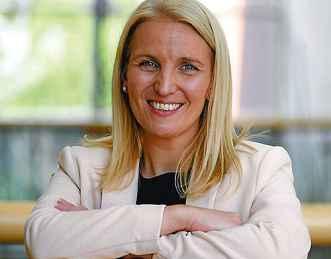
studied at Manchester University and now studying for an MA at Keele University,Annahas always believed in being ambitious for what aschool can do to help any child be the best they can be.
“Children learnina variety of ways and it is certainly not by being just told things they need to remember,” she stresses. “I know how much the people and the facilities in aschool can help a child to stretch themselves to achieve because they naturally thrive around positive influences and avariety of different
opportunities for learning.”

Aformerpupil at Wrekin College, she is afierce advocate of the positive ethos within the school which joined forces with Old Hall to create the Wrekin Old Hall Trust.

“I will be working closely with my staffteam to ensurewehave ashared understanding of what comprises an outstanding Old Hall education. My vision for our futureisthatatOld Hall we will commit to providing academic excellence
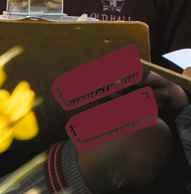



across abroad and balanced curriculum, which will include awiderange of innovative opportunities for our pupils.


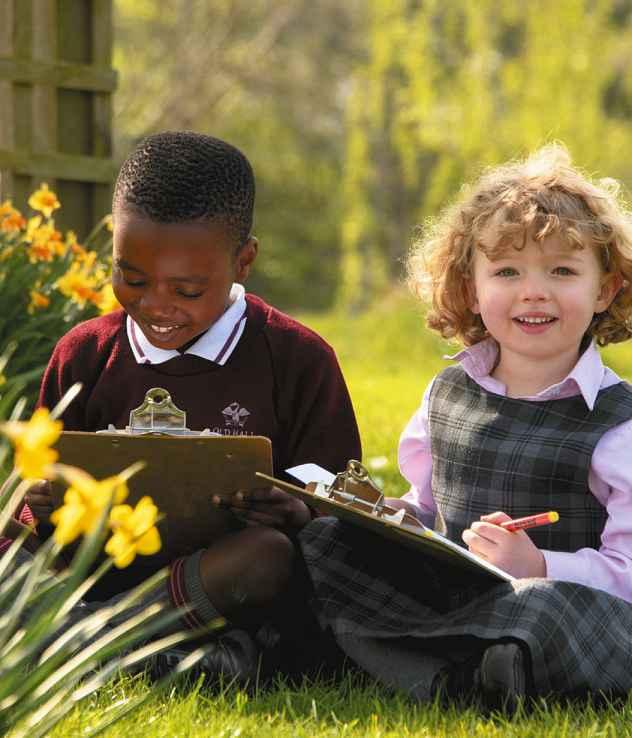
“The Old Hall approach will include an integrated and vibrant co-curricular programme. We will develop pathways to excellence for our students in academia, sports, music, drama and the arts.
“Our corevalues will revolve around setting excellent habits for life, which begin with us at Prep and extend to Senior School and beyond. Days at Old Hall will be busy,focused, purposeful, and full of fun! Our aim will be that every Old Hallian leaves us with astrong foundation; prepared, confident, and excited for every opportunity and challenge that lies ahead.”
Anna is thrilled to be sharing acampus with Wrekin. Wrekin has not only opened a Business School in the last five years, but also aMusic School, dance studio, and new astroturf, and plans have also been unveiled for anew Design and Technology School.

Reserve your place: SATURDAY Enjoya tour of our school, hear from staff and pupils, and ask anyquestions youmay have about the admissions process. Wellington, ShropshireTF1 3LB Registered Charity No: 528417 admissions@oldhall.co.uk www.oldhall.co.uk 01952 223117 Please jo in us on our OPEN DAY Independent co-educational dayschool 4-11 8TH OCTOBER 10AM NEWHEADTEACHER COMMITTED TO PROVIDING ACADEMIC
EXCELLENCE ACROSS A BROADAND BALANCED CURRICULUMWITHAWIDERANGE OF OPPORTUNITIESFOR PUPILS
57 Education | COMMUNITY AShropshireschool
Having
OldSwinfordHospital

OLDSWINFORDHOSPITALISA HAPPY, VIBRANTAND DISTINCTIVESTATEBOARDING SCHOOLWHERE TRADITIONS, COMMUNITYAND VALUES SITCOMFORTABLY ALONGSIDEINNOVATION
Existing for morethan 350 years, Old SwinfordHospital(or OSH for short) has the air of aschool whose values are deeply rooted in the beliefs of its founder, industrialist Thomas Foley.Heopened theSchool in 1667 for boys to develop the skills and attributes required to make adifference in the wider world. In 2021, girls werewelcomed into Year 7for the first time to great success and OSH is now co-educational.
Rated Outstanding for boarding by Ofsted and bringing together boarders and day pupils within its community,OSH prides itself on offering adifferent kind of educational experience wherelearning doesn’tend at the afternoon school bell. Staffunderstand and respond to the individual and collective personalities of pupils, and help each one to find and develop his or her own voice. Diversity of life is embraced, and learning to live –not simply work–alongside one another is a skill that cannot be underestimated.
‘Pupils live together,learn together and thrive at Old SwinfordHospital’ –Ofsted 2021
Preparing pupils for the future underpins everything we do. Through a broad academic curriculum and cocurricular opportunities, OSH encourages pupils to ‘discover who they can be’. From becoming national engineering champions,
debating at the European Parliament, playing netball in Malta or rugby in South Africa, visiting the Large Hadron Collider in Switzerland, or performing orchestral music in European cathedrals, OSH offers ahuge array of activities for your son or daughter to get involved in.
Academically,OSH ranks highly nationally in terms of progress, attainment and educational performance. All pupils will encounter great variety in their day; from sports to Shakespeare, coding to Mandarin. They will take end of year exams as well as regular end of topic tests to assess personal learning and academic development. Alevel and BTEC students have support with focussed careers guidance, work experience and their university applications.
Year 7pupils begin their journey at OSH as either Tailored Boarders, Flexi-Boarders or Day pupils.
Tailored Boarders and Flexi-Boarders pay afee which includes access to boarding houses, meals and after school activities. Day places arefreeaspupils only come into school for lessons and representative co-curricular activities.
OSH’sco-curriculum offers great breadth and inventiveness with afull programmeofsporting, cultural and
intellectual pursuits. Beyond lessons, pupils have morethan45co-curricular activities on offer –most of which are included in the boarding fee for Tailored or Flexi-Boarders –and will be able to develop their adventureskills through the Combined Cadet Force and Duke of Edinburgh Award. Plus, thereare many inter-house competitions (music, drama and sport to name afew!) or Student Voice, debating and council to get involved with. Pupils will find themselves stimulated and stretched, and regularly introduced to new activities so they can prove to themselves that they can ventureinto the unknown and achieve what they once thought was beyond them.
Importantly,the School has astrong cultureofpastoral carefor all of its pupils. In boarding this extends to their life in the boarding community whereboys and girls each have their own boarding houses, staffed with dedicated and experienced support teams, making boarding a‘home fromhome’.
We encourage families interested in boarding to come and visit us in order to see for themselves what adistinctiveand upbeat community we are. We’d be happy to give you apersonal tour of our boarding houses and facilities, and taster boarding stays areavailable.
58 Education| COMMUNITY
FACTFILE: Admissions: Tailored Boarding, Flexi-Boarding and Day places available for boys and girls in Year 7 RatedOUTSTANDING for boarding by Ofsted Fees per term: Tailored Boarding £4,194 and Flexi-Boarding £2,097. Thereare no fees for Day pupils Open mornings areSaturday 17 September,2022, and Saturday 10 June, 2023 Visit www.oshsch.com for moreinformation, or contact admissions@oshsch.com or 01384 817325 to arrange your personal boarding tour.


Register boys and girls forTailored/ FlexiBoarding and Dayplaces forYear 7 (aged 11) admissions@oshsch.com |01384 817325 |oshsch.com Heath Lane,Stourbridge,West Midlands,UKDY8 1QX To see our school please view our videos at www.oshsch.com and contactadmissions to arrange apersonal visit
w. te lf ord pr io ry sc ho ol .co .u k
w. te lf ord pr io ry sc ho ol .co .u k










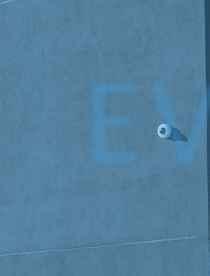








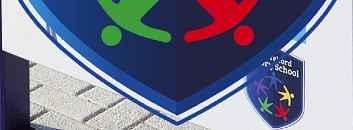
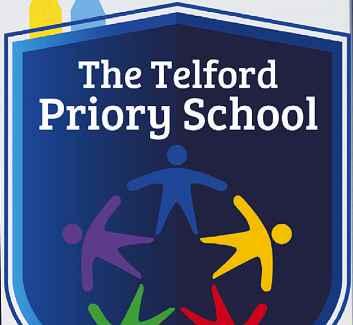




























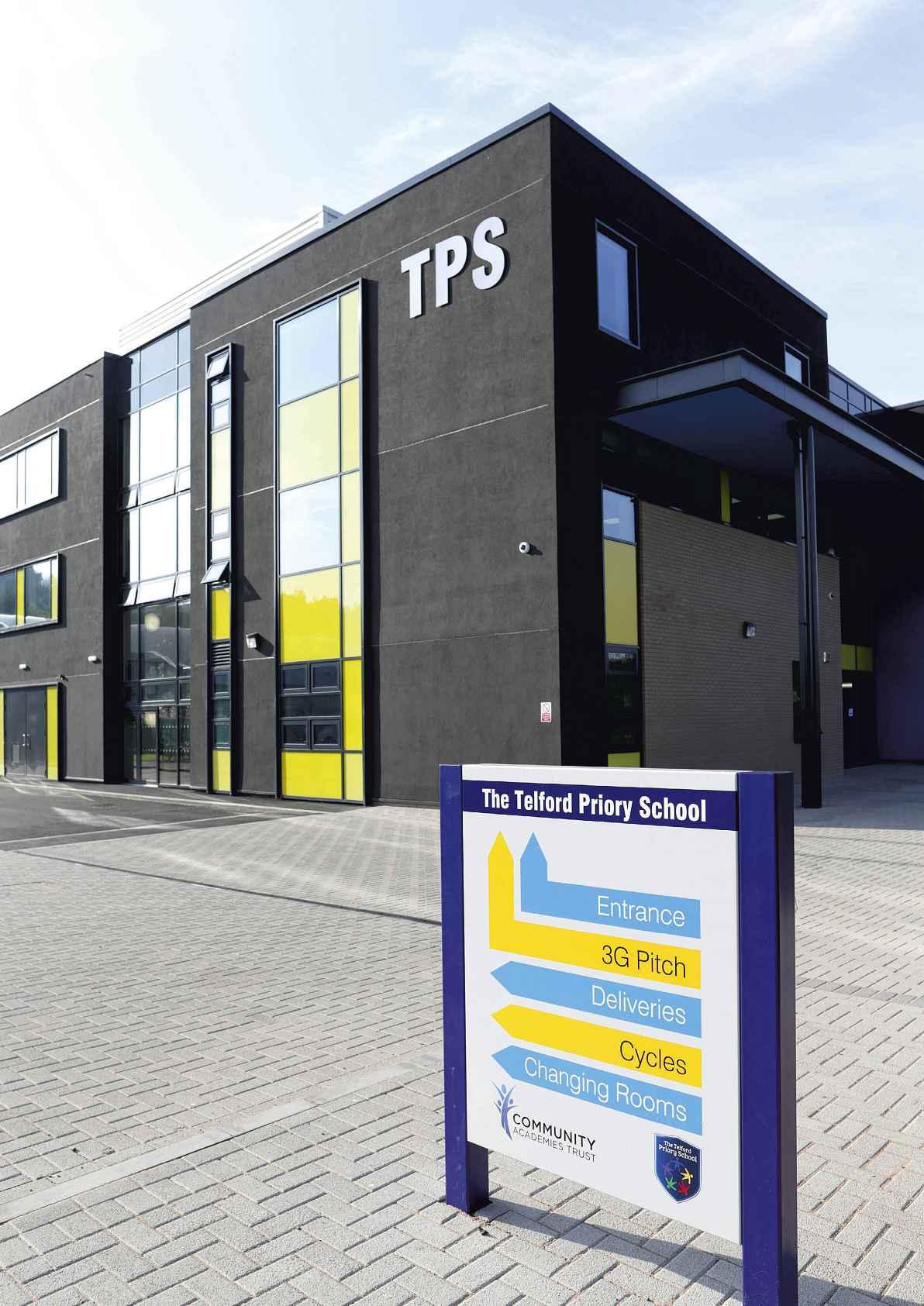
TheTelford Priory elSchool School ENSURINGEXCELLENCE GEXCELLENCE ww
OPEN EVENING 10thOctober 2022 6pmto8pm ww









































































































































































































































